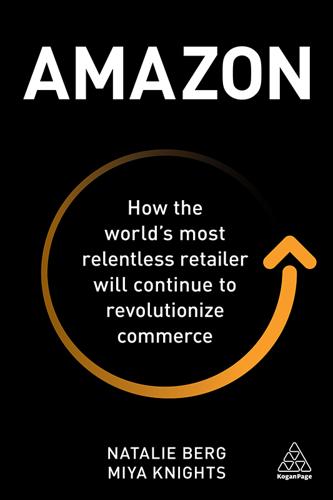
Amazon: How the World’s Most Relentless Retailer Will Continue to Revolutionize Commerce
by
Natalie Berg
and
Miya Knights
Published 28 Jan 2019
‘Grocery retailing is changing and we are ideally positioned to enable other retailers to achieve their online aspirations.’7 Steiner’s message echoed that of Instacart CEO Apoorva Mehta who, the same year, called the Amazon-Whole Foods deal a ‘blessing in disguise’.8 For years, Ocado had been promising investors it would secure an international partner for its grocery delivery technology, Ocado Smart Platform. After missing its first self-imposed deadline of a 2015 announcement, investors began to lose patience as the months and then years rolled on. Perhaps Ocado’s ambitions to transition from retailer to global technology provider were inflated? Ocado finally signed its first long-awaited deal with France’s Casino Groupe in 2017 – less than six months after Amazon’s Whole Foods acquisition. The agreement enables Casino to have exclusive rights to use Ocado’s robotics, online technology and delivery software in France.
…
However, I recommended a solution to Ocado and Kroger that if adopted, will eliminate the obstacles Ocado will face. The solution will also transform Ocado’s business model, allowing the company to expand into a channel they currently do not serve. Instead of Kroger utilizing Ocado’s warehouses, referred to as ‘sheds’, to fulfil online grocery orders, I recommended the following strategy to Kroger and Ocado: Introduce case-picking technology and robotics to build pallets of products destined for Kroger’s store shelves. Leverage the technology to replenish all products to Kroger’s stores. If implemented, this strategy will allow Kroger to close the majority of their 42 legacy distribution centres.
…
Applying my knowledge of Amazon and the global grocery industry, I completed an end-to-end assessment of Kroger’s operations and determined that the optimal course of action for Kroger to take would be to acquire Ocado. Kroger operated 42 legacy distribution centres to replenish nearly 2,800 stores, but did not have a supply chain capable of meeting the demands of e-commerce. Acquiring Ocado would give Kroger access to best-in-class grocery fulfilment software capable of transforming their business model. It would also provide them with a competitive advantage. Kroger became convinced through their discussions with Ocado that leveraging Ocado’s Customer Fulfilment Centre (CFC) technology would transform their supply chain. However, with a price tag of nearly US $2 billion, Kroger chose to take a 5 per cent stake in Ocado worth $247 million instead of acquiring the company.
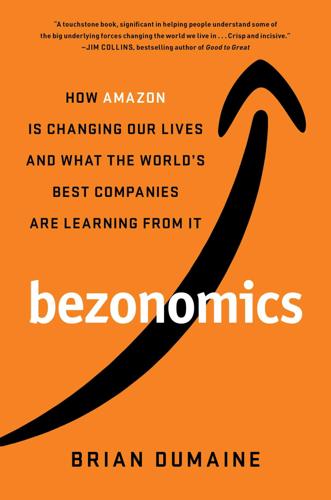
Bezonomics: How Amazon Is Changing Our Lives and What the World's Best Companies Are Learning From It
by
Brian Dumaine
Published 11 May 2020
The robots can do it in a matter of minutes. Ocado’s system can fill 65,000 grocery orders every week. In February 2019, a fire that started from an electrical fault at a robot recharging station destroyed the warehouse. Ocado is rebuilding. Ocado isn’t just an online grocery. It hopes to sell its robotic system to big retailers around the world. So far it has sealed deals to build warehouses for international retailers, including one signed in 2018 with the U.S. supermarket chain Kroger for twenty automated “customer fulfillment centers.” On the day the deal became public, Ocado’s shares jumped 45 percent. Chinese online retailer JD.com, which has designed a warehouse specifically to work smoothly with machines, offers another glimpse of what the future may look like.
…
Bernie Sanders Is Right to Target Them,” The Guardian, September 17, 2018. He describes a workplace: Ibid. It opened its Andover: “A 360° Tour of Ocado’s Andover CFC3 Automated Warehouse,” Orcado Technology video, posted on YouTube May 10, 2018, https://www.youtube.com/watch?v=JMUNI4UrNpM. Under each square: James Vincent, “Welcome to the Automated Warehouse of the Future,” The Verge, May 8, 2018. In February 2019, a fire: “Ocado Warehouse Fire in Andover Started by Electrical Fault,” BBC News, April 29, 2019. On the day the deal beacame public: Naomi Rovnick, “Ocado Profits Dip as Costs of Robot Warehouses Climb,” Financial Times, July 10, 2018. One of China’s largest online retailers: Craig Smith, “65 JD Facts and Statistics,” DMR Business Statistics, https://expandedramblings.com/index.php/by-the-numbers-15-amazing-jd-com-stats/.
…
Says the engineer, “If you’re in a demo lab setting and something doesn’t work, it’s not a big deal. But if you’re in a warehouse setting where 15 percent of the time something is failing, that’s just an operational nightmare.” Amazon isn’t the only one working on technologically advanced warehouses. Some of the most advanced can be found in Europe and in China. Ocado, a British online-only supermarket, which calls itself an “AI First Organization,” offers a glimpse of the future. It opened its Andover, England, facility, which is the size of several football fields, in 2018. Inside the space are metal rails in the shape of a grid that look like a giant chessboard.
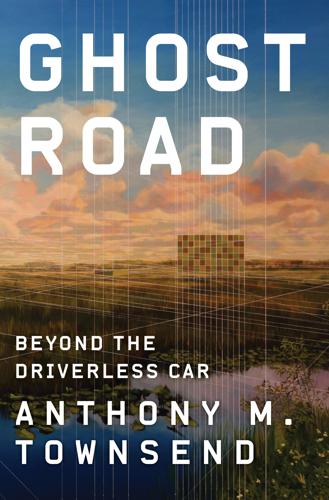
Ghost Road: Beyond the Driverless Car
by
Anthony M. Townsend
Published 15 Jun 2020
Streets,” New York Times, October 28, 2019, https://www.nytimes.com/2019/10/27/nyregion/nyc-amazon-delivery.html. 136Amazon cornered the market: Scott Kirsner, “Acquisition Puts Amazon Rivals in Awkward Spot,” Boston Globe, December 1, 2013, https://www.bostonglobe.com/business/2013/12/01/will-amazon-owned-robot-maker-sell-tailer-rivals/FON7bVNKvfzS2sHnBHzfLM/story.html. 136100,000 of these diligent devices were reporting: Nick Wingfield, “As Amazon Pushes Forward with Robots, Workers Find New Roles,” New York Times, September 10, 2017, https://www.nytimes.com/2017/09/10/technology/amazon-robots-workers.html. 137cramming 50 percent more inventory: Ananya Bhattacharya, “Amazon Is Just Beginning to Use Robots in Its Warehouses and They’re Already Making a Huge Difference,” Quartz, June 17, 2016, https://qz.com/709541/amazon-is-just-beginning-to-use-robots-in-its-warehouses-and-theyre-already-making-a-huge-difference/. 137bots that slide along tracks suspended: Fiona Hartley, “Over 1,000 Robots Pack Groceries in Ocado’s Online Shopping Warehouse,” Dezeen, June 6, 2018, https://www.dezeen.com/2018/06/06/video-ocado-warehouse-shopping-robots-movie/. 137China’s JD.com employs a freakish spiderlike robot: JD.com, “Tour of the Warehouse of the Future,” YouTube video, May 11, 2017, https://www.youtube.com/watch?v=24T14VP5vVs. 137will face excruciating pressure to control carbon emissions: OECD/ITF, ITF Transport Outlook 2017 (Paris: OECD Publishing, 2017), https://www.ttm.nl/wp-content/uploads/2017/01/itf_study.pdf. 137“that incessantly revolutionizes the economic structure”: Joseph Schumpeter, Capitalism, Socialism, and Democracy (London, UK: Routledge, 1942), 82–83. 138Domino’s Pizza outlet averages a mere 1,500 square feet: United States Securities and Exchange Commission, Annual Report Pursuant to Section 13 or 15(d): Domino’s Pizza, December 29, 2013, p. 4, https://www.sec.gov/Archives/edgar/data/1286681/000119312514066092/d661353d10k.htm. 138cardboard pizza, scant sauce, and synthetic-tasting: Allison P.
…
AVs rocket among the rows at speeds of up to 17 miles per hour, more than four times a brisk walking pace. Workers are confined to safe zones. Even more alien interiors are to come. Boxed out of borrowing Kiva’s patented sled scheme, Amazon’s rivals are pursuing their own exotic ideas for robot workers. Ocado, an online supermarket chain in the UK, has bots that slide along tracks suspended above bins of goods, grabbing up items as they traverse an illuminated grid reminiscent of the 1982 film Tron. China’s JD.com employs a freakish spiderlike robot that hangs from the ceiling swinging its five-foot arms around more than 100 times each minute to pick and pack items for shipment.
…
Goods would flow like hot potatoes from AV to AV to their final destination without stopping over in stationary storage. As an added benefit, a warehouseless distribution system would eliminate the risks created by having a fulfillment center as a single point of failure. In February 2019, as executives of UK online grocery chain Ocado reported quarterly earnings figures to a roomful of investors in London, the company’s automated warehouse in Andover was burning to the ground, its 600-strong android workforce trapped inside. It took more than 200 firefighters, who were forced to cut holes in the structure’s roof to fight the blaze, some three days to fully extinguish the flames.
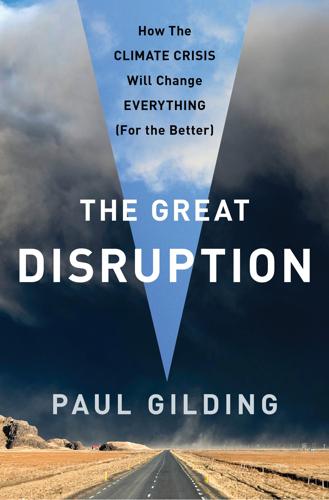
The Great Disruption: Why the Climate Crisis Will Bring on the End of Shopping and the Birth of a New World
by
Paul Gilding
Published 28 Mar 2011
The reason I love this example is that it recognizes that technology alone is not a solution—but technology coupled with behavior change, and designed to promote the latter, can deliver real and lasting results. This is also a fine example of the power of markets to deliver. Another of Generation’s investments is in Ocado, a new supermarket model based in the United Kingdom. This is a potentially disruptive business that exemplifies what we discussed in chapters 11 and 12 about Schumpeter’s creative destruction. Based entirely online without any retail stores, Ocado claims their home delivery shopping service has a lower carbon footprint than walking to the supermarket! How’s that? Today’s “megamarts,” with so much retail display space, open refrigerators, and the like, have huge physical and environmental footprints.
…
Today’s “megamarts,” with so much retail display space, open refrigerators, and the like, have huge physical and environmental footprints. They are designed to encourage you to purchase more, not for operational efficiency. By basing their entire operation out of a centralized, automated warehouse, Ocado has completely eliminated this impact. Given that most people don’t walk to the supermarkets anyway because such stores tend to lie on the edge of town surrounded by huge parking lots, a single delivery van can take countless cars off the road. Aside from their green credibility, their state-of-the-art logistical system will do some neat things, too, like allowing you to choose a delivery time down to the hour and then sending you a reminder on your phone a couple of hours before with the driver’s name and license plate number.
…
Given that there’s a lot to be said for shopping locally for the environmental and community benefits it brings, this model might rekindle the competitiveness of small, specialist shops close to town that people can walk or cycle to for their small daily items. If people bought online, it would enable far more efficiency in packaging, with function rather than marketing as the main criterion. We should welcome Ocado and business models like it as exciting experiments in new ways of running our economy. If we want the mainstream investment markets to divert trillions of dollars into these issues, as we’ll need them to, we need trailblazers like David, Colin, and their colleagues to show how it can be done successfully.
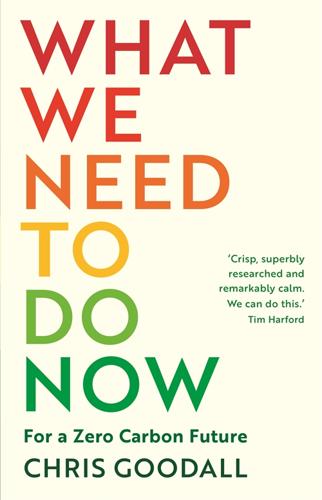
What We Need to Do Now: A Green Deal to Ensure a Habitable Earth
by
Chris Goodall
Published 30 Jan 2020
The whole ‘factory’ (this time above ground) is automated, using a robot to move the trays up to the highest level. Only eight people are employed to actually produce the food. The online grocery retailer Ocado bought a large stake in the company in 2019, announcing plans for a partnership to open another ten indoor farms within five years. The Jones Food CEO said that the aim is to put warehouses for growing food next to Ocado’s warehouses, hoping in some cases to get the fresh leaves to customers within an hour of being picked. The central benefit of this new type of farming is that growing vegetables and fruits inside a building, usually in trays that are stacked vertically as if in a warehouse, improves yields compared to a field of the same size.
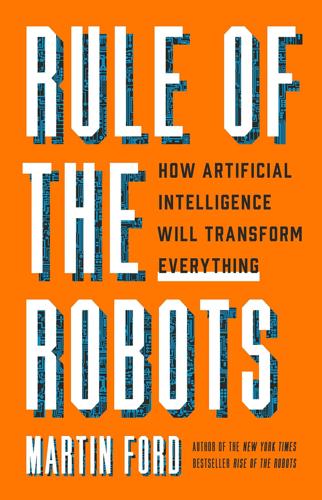
Rule of the Robots: How Artificial Intelligence Will Transform Everything
by
Martin Ford
Published 13 Sep 2021
Grocery stores in both North America and Europe, in particular, are aggressively moving toward automation in distribution centers as a way of becoming more efficient and delving into online sales, partly in anticipation of Amazon’s looming disruption of the grocery market in the wake of its acquisition of Whole Foods in June 2017. One of the leaders in this arena is United Kingdom–based Ocado, which runs its own online grocery service and also markets its warehouse automation technology to supermarket chains worldwide. At the company’s distribution center in Andover, England, more than a thousand robots run on rails arranged in an elevated grid structure resembling a massive checkerboard.
…
The wide variety of items that characterizes a typical grocery list—everything from canned goods to boxed items to fresh produce—presents a particular challenge for robotic manipulation. As technology journalist James Vincent points out, “nothing stumps a robot quite like a bag of oranges.” The difficulty is that “the bag moves in too many weird ways, there are no obvious bits to grab hold of, and if you squeeze too hard you end up with orange juice instead.”20 Nonetheless, Ocado is already experimenting with robots that attempt to overcome these challenges. The company is employing robotic picker arms that use suction cups to lift items with suitable surfaces, such as cans, as well as soft rubber robotic hands that someday will be able to effectively grasp more fragile items.
…
One of the hottest recent trends is the integration of so-called “mini–fulfillment centers” into the backs of traditional grocery stores. These facilities, which are set up by a number of startup companies, including Takeoff Technologies and Israeli-based Fabric, offer robotic fulfillment capabilities that are in many ways comparable to what is found in the much larger distribution centers built by companies like Ocado. The mini–fulfillment centers allow grocery stores to efficiently handle online delivery operations and can prepare up to 4,000 orders per week.31 By keeping online operations separate from the main store, the technology allows grocers to avoid sending store employees into potentially crowded aisles to retrieve items while reducing pressure on inventory in customer areas of the store which may, in the age of the coronavirus toilet paper panic, already be running low.
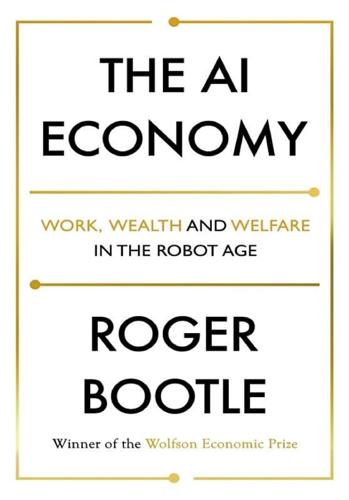
The AI Economy: Work, Wealth and Welfare in the Robot Age
by
Roger Bootle
Published 4 Sep 2019
This new sort of retail job involves the human element and requires more skill and knowledge, while the boring, repetitive stuff is left to machines. Further up the supply chain, Ocado, the British internet supermarket, is reinventing itself as a supplier of warehouse services to retailers around the world. It has recently landed a contract with the Canadian grocer Sobeys which will launch an online shop with orders picked from an automated warehouse in the Toronto area. There won’t be many jobs for humans in the warehouse. Battery-powered robots are at the center of Ocado’s model. Mind you, robots are still not very good at picking things from the shelves. As a result, warehouses are now using “the Jennifer Unit,” which is a headset that tells human workers what to do.
…
Inclination to regulate On past form, as well as on the basis of current amounts of money being spent on AI, you might readily expect the USA and China to be in the forefront of AI and related developments. Moreover, they are the countries which are most likely to allow the economic changes implied by the AI revolution to have their head, without moderating or suppressing them for social reasons. Ocado told the same House of Lords Committee that China’s relative lack of regulation gave it an advantage, commenting that “less regulation around the application of technology is fueling faster experimentation and innovation, including when it comes to the use of data and AI.”28 By contrast, you can readily imagine some countries taxing and regulating robots and AI more heavily than others.
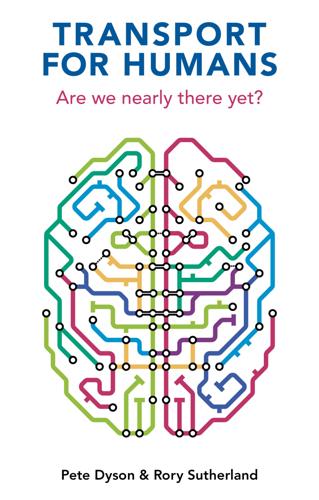
Transport for Humans: Are We Nearly There Yet?
by
Pete Dyson
and
Rory Sutherland
Published 15 Jan 2021
Ison and L. Budd. 2019. The impact of the Nottingham Workplace Parking Levy on travel to work mode share. Case studies on transport policy. Preprint, 6 September (https://dora.dmu.ac.uk/bitstream/handle/2086/18604/main.pdf?sequence=3&isAllowed=y). 21 Many online grocery services (including Ocado and Tesco) do this, having discovered that a customer is only ‘converted’ to online shopping after their third order. After that, further incentivization becomes less necessary: at that point ‘they get the idea’. 22 Next Green Car. 2020. Electric car market statistics. Report (www.nextgreencar.com/electric-cars/statistics/). 23 Department for Transport. 2018.
…
Having more routes, more times and more fare options is not always better, especially for new users. It becomes overwhelming and makes the system feel hard to use. We often simplify by defaulting to simple rules of thumb that may be very expensive, limit our opportunities or waste our time. Guide choice with additional pointers The online supermarket Ocado saw many customers abandoning their cart when they had to select a delivery time, so the company added a little green van icon to the times when a delivery would be in the customer’s neighbourhood anyway. It did this without changing the delivery fee or reducing the options, but conversion improved anyway.
…
Now Existing digital technologies, innovation from outside-in E-commerce/videoconferencing/digital connectivity/digital platforms Journey planners/shared mobility/car clubs/demand-responsive transport Near Existing physical technologies accelerated by transport Micromobility (e-scooters, e-bikes and more) Electric cars Far Emerging technologies pioneered by transport Driverless cars/autonomous vehicles/drones Hydrogen-powered freight, trains and shipping Hyperloop trains/electric planes The ‘hype curve’ shows how new technologies start more slowly than insiders expect. Skype started in 2003 and Ocado in 2010, and while the benefits of both were clear from the outset, they saw modest usage until an exogenous shock – the Covid-19 pandemic – acted as a trigger for an explosion in home working and online shopping. Meanwhile, it took Uber many years – as well as questionable business practices and $14 billion in cumulative losses – from its founding in 2009 to gain widespread adoption, with dozens of gig-economy and ride-share services also finding that people’s aptitude and appetite for smartphone-connected travel fell short of their founders’ original enthusiasm.

Exponential: How Accelerating Technology Is Leaving Us Behind and What to Do About It
by
Azeem Azhar
Published 6 Sep 2021
When a company is expanding quickly, it needs more people – and that holds true however much you invest in automation. If we zoom out wider than the pandemic, we see that automation, growth and increasing employee numbers go hand in hand. Britain’s Ocado is widely regarded as one of the most sophisticated grocery retailers in the world. It has huge, wholly automated factories where cuboid robots scuttle around picking up lettuces and ketchup and shampoo, nary a human in sight. But between 2016 and 2020, Ocado’s headcount grew some 43 per cent. Chinese retailer JD.com has also invested heavily in warehouse automation. In 2018, the firm opened a warehouse that could handle 200,000 orders a day – with only four staff.36 Yet the following year, JD.com added 48,000 employees to its payroll, an increase of more than 27 per cent.
…
Abu Dhabi, UAE, 250 Acemoglu, Daron, 139 Acorn Computers, 16, 21 Ada Lovelace Institute, 8 additive manufacturing, 43–4, 46, 48, 88, 166, 169, 175–9 Adidas, 176 advertising, 94, 112–13, 116, 117, 227–8 AdWords, 227 aeroponics, 171 Afghanistan, 38, 205 Africa, 177–8, 182–3 Aftenposten, 216 Age of Spiritual Machines, The (Kurzweil), 77 agglomeration, 181 Air Jordan sneakers, 102 Airbnb, 102, 188 aircraft, 49–50 Alexandria, Egypt, 180 AlexNet, 33 Algeciras, HMM 61 Alibaba, 48, 102, 108, 111, 122 Alipay, 111 Allen, Robert, 80 Alphabet, 65, 113–14, 131, 163 aluminium, 170 Amazon, 65, 67–8, 94, 104, 108, 112, 122, 135–6 Alexa, 25, 117 automation, 135–6, 137, 139, 154 collective bargaining and, 163 Covid-19 pandemic (2020–21), 135–6 drone sales, 206 Ecobee and, 117 Go stores, 136 Kiva Systems acquisition (2012), 136 management, 154 Mechanical Turk, 142–3, 144, 145 monopoly, 115, 117, 122 Prime, 136, 154 R&D, 67–8, 113 Ami Pro, 99 Amiga, 16 Anarkali, Lahore, 102 anchoring bias, 74 Android, 85, 94, 117, 120 Angola, 186 Ant Brain, 111 Ant Financial, 111–12 antitrust laws, 114, 119–20 Apache HTTP Server, 242 Appelbaum, Binyamin, 63 Apple, 47, 62, 65, 85, 94, 104, 108, 112, 122 App Store, 105, 112, 115 chip production, 113 Covid-19 pandemic (2019–21), 222–3 data collection, 228 iOS, 85 iPhone, 47, 62, 85, 94, 105 media subscription, 112 watches, 112 APT33 hacker group, 198 Aral, Sinan, 238 Aramco, 108, 198 Armenia, 206–7 Arthur, William Brian, 110, 123 artificial intelligence, 4, 8, 31–4, 54, 88, 113, 249 academic brain drain, 118 automation, 125–42 data and, 31–2, 142 data network effect, 106–7 drone technology and, 208, 214 education and, 88 employment and, 126–7 healthcare and, 88, 103 job interviews and, 153 regulation of, 187, 188 arXiv, 59 Asana, 151 Asian Development Bank, 193 Aslam, Yaseen, 148 Assembly Bill 5 (California, 2019), 148 asymmetric conflict, 206 AT&T, 76, 100 Atari, 16 attack surfaces, 192–3, 196, 209, 210 Aurora, 141 Australia, 102, 197 automation, 125–42 autonomous weapons, 208, 214 Azerbaijan, 173, 206–7 Ballmer, Steve, 85 Bangladesh, 175 banking, 122, 237 Barcelona, Catalonia, 188 Barlow, John Perry, 184 Barrons, Richard, 195, 211 Bartlett, Albert, 73 batteries, 40, 51, 53–4, 250, 251 Battle of the Overpass (1937), 162 Bayraktar TB2 drone, 206 Bee Gees, 72 Bekar, Clifford, 45 Bell Labs, 18 Bell Telephone Company, 100 Benioff, Marc, 108–9 Bentham, Jeremy, 152 Berlin Wall, fall of (1989), 4 Bermuda, 119 Berners-Lee, Timothy, 55, 100, 160, 239 Bessen, James, 46 Bezos, Jeffrey, 135–6 BGI, 41 Biden, Joseph, 225 Bing, 107 biological weapons, 207, 213 biology, 10, 39, 40–42, 44, 46 genome sequencing, 40–41, 90, 229, 234, 245–7, 250, 252 synthetic biology, 42, 46, 69, 174, 245, 250 biopolymers, 42 bits, 18 Black Death (1346–53), 12 BlackBerry, 120 Blair, Tony, 81 Bletchley Park, Buckinghamshire, 22 blitzscaling, 110 Blockbuster, 138 BMW, 177 Boeing, 51, 236 Bol.com, 103 Bollywood, 181 Boole, George, 18 Bork, Robert, 114–15, 117, 119 Bosworth, Andrew, 233 Boyer, Pascal, 75 Boyle, James, 234 BP, 92, 158 brain, 77 Braudel, Fernand, 75 Brave, 242 Brazil, 202 Bremmer, Ian, 187 Bretton Woods Conference (1944), 87 Brexit (2016–20), 6, 168 British Broadcasting Corporation (BBC), 87, 129, 191 Brookings Institution, 130 BT, 123 Bulgaria, 145 Bundy, Willard Legrand, 149 Busan, South Korea, 56 business, 82, 92–124 diminishing returns to scale, 93, 108 economic dynamism and, 117 economies of scale, 50, 92 growth, 110–13 increasing returns to scale, 108–10 intangible economy, 104–7, 118, 156, 175, 180 linear value chains, 101 market share, 93–6, 111 monopolies, 10, 71, 94, 95, 114–24 network effect, 96–101 platform model, 101–3, 219 re-localisation, 11, 166–79, 187, 252, 255 state-sized companies, 11, 67 superstar companies, 10, 94–6 supply chains, 61–2, 166–7, 169, 175, 187, 252, 255 taxation of, 96, 118–19 Butler, Nick, 179 ByteDance, 28 C40 initiative, 189 Cambridge University, 127, 188 cancer, 57–8, 127 Capitol building storming (2021), 225 car industry, 93 carbon emissions, 35, 90, 251 Carlaw, Kenneth, 45 Carnegie, Andrew, 112 Carnegie Mellon University, 131 Catholic Church, 83, 88 censorship, 216–17, 224–6, 236 Central Intelligence Agency (CIA), 194 Cerebras, 34 cervical smears, 57–8 chemical weapons, 207, 213 Chen, Brian, 228 chewing gum, 78 Chicago Pile-1 reactor, 64 Chile, 170 China automation in, 127, 137 brainwave reading in, 152 Covid-19 pandemic (2019–21), 245 drone technology in, 207 Great Firewall, 186, 201 Greater Bay Area, 182 horizontal expansion in, 111–12 manufacturing in, 176 misinformation campaigns, 203 raw materials, demand for, 178 Singles’ Day, 48 social credit systems, 230 superstar companies in, 95 US, relations with, 166 chips, 19–22, 28–9, 48–9, 52, 113, 251 Christchurch massacre (2019), 236 Christensen, Clayton, 24 CIPD, 153 cities, 11, 75, 169, 179–84, 188, 255 Clegg, Nick, 225–6, 235 climate change, 90, 169, 187, 189, 251, 252 cloud computing, 85, 112 Cloudflare, 200 cluster bombs, 213 CNN, 185, 190 coal, 40, 65, 172 Coase, Ronald, 92 Coca-Cola, 93 code is law, 220–22, 235 cold fusion, 113–14 Cold War (1947–91), 194, 212, 213 collective bargaining, 147, 149, 154, 156, 162–5 Colombia, 145 colonialism, 167 Columbus, Christopher, 4 combination, 53–7 Comical Ali, 201 commons, 234–5, 241–3, 256 companies, see business comparative advantage, 170 complex systems, 2 compounding, 22–3, 28 CompuServe, 100 computing, 4, 10, 15–36, 44, 46, 249 artificial intelligence, 4, 8, 31–4, 54, 88 cloud computing, 85, 112 internet, 47–8, 55, 65, 84 Law of Accelerating Returns, 30–31, 33, 35 machining, 43 Moore’s Law, see Moore’s Law quantum computing, 35 transistors, 18–22, 28–9, 48–9, 52 conflict, 87, 189, 190–215 attack surfaces, 192–3, 196, 209, 210 cyberattacks, 11, 114, 140, 181, 187, 190–200, 209–14, 256 de-escalation, 212–13 drone technology, 11, 192, 204–9, 214, 256 institutional change and, 87 misinformation, 11, 191, 192, 200–204, 209, 212, 217, 225 new wars, 194 non-proliferation, 213–14 re-localisation and, 189, 193, 194, 209 consent of the networked, 223 Costco, 67 Coursera, 58 Covid-19 pandemic (2019–21), 12–13, 59, 78–9, 131, 245–9 automation and, 127, 135, 136 cities and, 183 contact-tracing apps, 222–3 gig economy and, 146 lockdowns, 12, 152, 176, 183, 246 manufacturing and, 176 misinformation and, 202–4, 247–8 preprint servers and, 60 recession (2020–21), 178 remote working and, 146, 151, 153 supply chains and, 169, 246 vaccines, 12, 202, 211, 245–7 workplace cultures and, 151, 152 cranks, 54 credit ratings, 162, 229 critical thinking skills, 212 Croatia, 145 Crocker, David, 55 crowdsourcing, 143–4 Cuba, 203 Cuban missile crisis (1962), 99, 212 cultural lag, 85 cyberattacks, 11, 114, 140, 181, 187, 190–200, 209–14, 256 CyberPeace Institute, 214 Daniel, Simon, 173–4 Dar es Salaam, Tanzania, 183 Darktrace, 197 data, 8, 11, 71, 217–19, 226–31, 235, 237–42, 256 AI and, 8, 32, 33, 58, 106 compensation for, 239 commons, 242 cyberattacks and, 196 doppelgängers, 219, 226, 228, 239 interoperability and, 237–9 network effects, 106–7, 111 protection laws, 186, 226 rights, 240 Daugherty, Paul, 141 DDT (dichlorodiphenyltrichloroe thane), 253 death benefits, 151 Dediu, Horace, 24, 30 deep learning, 32–4, 54, 58, 127 deforestation, 251 dehumanisation, 71, 154, 158 deindustrialisation, 168 Deliveroo, 154, 163 Delphi, 100 dematerialised techniques, 166, 175 Denmark, 58, 160, 199–200, 257 Deutsche Bank, 130 Diamandis, Peter, 5 Dickens, Charles, 80 digital cameras, 83–4 Digital Geneva Convention, 211 Digital Markets Act (EU, 2020), 122 digital minilateralism, 188 Digital Nations group, 188 Digital Services Act (EU, 2020), 123 diminishing returns, 93, 108 disinformation, see misinformation DoorDash, 147, 148, 248 dot-com bubble (1995–2000), 8, 108, 150 Double Irish tax loophole, 119 DoubleClick, 117 drone technology, 11, 192, 204–9, 214, 256 Dubai, UAE, 43 Duke University, 234 dystopia, 208, 230, 253 Eagan, Nicole, 197 eBay, 98, 121 Ecobee, 120 economies of scale, 50, 92 Economist, The, 8, 65, 119, 183, 239 economists, 63 Edelman, 3 education artificial intelligence and, 88 media literacy, 211–12 Egypt, 145, 186 Elance, 144 electric cars, 51, 69, 75, 173–4, 177, 250 electricity, 26, 45, 46, 54, 157, 249–50 see also energy Electronic Frontier Foundation, 184 email, 6, 55 embodied institutions, 82 employment, 10, 71, 125–65 automation, 125–42 collective bargaining, 147, 149, 154, 156, 162–5 dehumanisation and, 71, 154, 158 flexicurity, 160–61, 257 gig economy, 10, 71, 142–9, 153, 162, 164, 239, 252, 255 income inequality, 155–8, 161, 168 lump of labour fallacy, 139 management, 149–54, 158–9 protections, 85–6, 147–9 reskilling, 159–60 universal basic income (UBI), 160, 189 Enclosure, 234–5, 241 energy, 11, 37–8, 39–40, 44, 46, 172–4, 250 cold fusion, 113–14 fossil fuels, 40, 159, 172, 250 gravitational potential, 53 solar power, 37–8, 53, 65, 77, 82, 90, 171, 172, 173, 249, 250, 251 storage, 40, 53, 114, 173–4, 250, 251 wind power, 39–40, 52 Energy Vault, 53–4, 173 Engels, Friedrich, 81 Engels’ pause, 80, 81 environmental movement, 73 Epic Games, 116 estate agents, 100 Estonia, 188, 190–91, 200, 211 Etzion Airbase, Sinai Peninsula, 195 European Commission, 116, 122, 123 European Space Agency, 56 European Union, 6, 82, 147, 186, 226 Excel, 99 exogeny, 2 exponential gap, 9, 10, 67–91, 70, 89, 253 cyber security and, 193 institutions and, 9, 10, 79–88, 90 mathematical understanding and, 71–5 predictions and, 75–9 price declines and, 68–9 superstar companies and, 10, 94–124 exponential growth bias, 73 Exponential View, 8–9 externalities, 97 extremism, 232–4 ExxonMobil, 65, 92 Facebook, 27, 28, 65, 94, 104, 108, 122, 216–17, 218, 219, 221–2, 223 advertising business, 94, 228 censorship on, 216–17, 224–6, 236 collective bargaining and, 164 data collection on, 228, 239–40 extremism and, 233–4 Instagram acquisition (2012), 117, 120 integrity teams, 234 interoperability, 237–8 Kenosha unrest shooting (2020), 224 misinformation on, 201, 225 network effect and, 98, 223 Oculus acquisition (2014), 117 pay at, 156–7 Phan photo controversy (2016), 216–17, 224, 225 platform model, 101 polarisation and, 233 relationship status on, 221–2 Rohingya ethnic cleansing (2018), 224, 225 US presidential election (2016), 217 WhatsApp acquisition (2014), 117 facial recognition, 152, 208 Factory Act (UK, 1833), 81 Fairchild Semiconductor, 19, 21 fake news, 201–4 family dinners, 86 farming, 170–72, 251 Farrar, James, 148 fax machines, 97 Federal Aviation Administration (US), 236 feedback loops, 3, 13 fertilizers, 35, 90 5G, 203 Financial Conduct Authority, 122 Financial Times, 183 Finland, 160, 211–12 Fitbit, 158 Fiverr, 144 flashing of headlights, 83 flexicurity, 160, 257 flints, 42 flywheels, 54 Ford, 54, 92, 162 Ford, Gerald, 114 Ford, Henry, 54, 162 Ford, Martin, 125 Fortnite, 116 fossil fuels, 40, 159, 172 France, 100, 138, 139, 147, 163 free-market economics, 63–4 freelance work, 10, 71, 142–9 Frey, Carl, 129, 134, 141 Friedman, Milton, 63–4, 241 Friedman, Thomas, 167 FriendFeed, 238 Friendster, 26 Fudan University, 245 fund management, 132 Galilei, Galileo, 83 gaming, 86 Gates, Bill, 17, 25, 84 gender, 6 General Agreement on Tariffs and Trade, 87 General Data Protection Regulation (GDPR), 226 General Electric, 52 General Motors, 92, 125, 130 general purpose technologies, 10, 45–8 generative adversarial networks (GANs), 58 Geneva Conventions, 193, 199, 209 Genghis Khan, 44 GEnie, 100 genome sequencing, 40–41, 90, 229, 234, 245–7, 250, 252 Germany, 75, 134, 147 Giddens, Anthony, 82 gig economy, 10, 71, 142–9, 153, 162, 164, 239, 252, 255 Gilbreth, Lillian, 150 Ginsparg, Paul, 59 GitHub, 58, 60 GlaxoSmithKline, 229–30 global financial crisis (2007–9), 168 Global Hawk drones, 206 global positioning systems (GPS), 197 globalisation, 11, 62, 64, 156, 166, 167–71, 177, 179, 187, 193 internet and, 185 conflict and, 189, 193, 194 Glocer, Thomas, 56 Go (game), 132 GOAT, 102 Gojek, 103 Golden Triangle, 170 Goldman Sachs, 151 Goodfellow, Ian, 58 Google, 5, 35, 36, 94, 98, 104, 108, 115, 122 advertising business, 94, 112–13, 116, 117, 227 Android, 85, 94, 117, 120 chip production, 113 Covid-19 pandemic (2019–21), 222–3 data network effect, 106–7 death benefits, 151 Double Irish tax loophole, 119 Maps, 113 quantum computing, 35 R&D, 114, 118 vertical integration, 112–13, 116 X, 114 YouTube acquisition (2006), 112, 117 Gopher, 59, 100 GPT-3, 33 Graeber, David, 133–4 Grand Bazaar, Istanbul, 102 Graphcore, 34, 35 graphics chips, 34 Grateful Dead, The, 184 gravitational potential energy, 53 gravity bombs, 195 Greater Bay Area, China, 182 Greenberg, Andy, 199 Gross, Bill, 53 Grove, Andrew, 17 GRU (Glavnoje Razvedyvatel’noje Upravlenije), 199 Guangzhou, Guangdong, 182 Guardian, 8, 125, 154, 226, 227 Guiyang, Guizhou, 166 H1N1 virus, 75 Habermas, Jürgen, 218 Hard Times (Dickens), 80 Hardin, Garrett, 241 Harop drones, 207–8 Harpy drones, 207–8 Harvard University, 150, 218, 220, 221, 253 healthcare artificial intelligence and, 57–8, 88, 103 data and, 230, 239, 250–51 wearable devices and, 158, 251 Helsinki, Finland, 160 Herlev Hospital, Denmark, 58 Hinton, Geoffrey, 32, 126–7 HIPA Act (US, 1996), 230 Hitachi, 152 Hobbes, Thomas, 210 Hoffman, Josh, 174 Hoffman, Reid, 110, 111 Holmes, Edward, 245 homophily, 231–4 Hong Kong, 182 horizontal expansion, 111–12, 218 Houston Islam protests (2016), 203 Houthis, 206 Howe, Jeff, 143 Hsinchu, Taiwan, 181 Hughes, Chris, 217 Hull, Charles, 43 Human + Machine (Daugherty), 141 human brain, 77 human genome, 40–41, 90, 229, 234, 250 human resources, 150 Hussein, Saddam, 195 Hyaline, 174 hydroponics, 171 hyperinflation, 75 IBM, 17, 21, 47, 98 IDC, 219 Ideal-X, 61 Ikea, 144 Illumina, 41 Ilves, Toomas Hendrik, 190 ImageNet, 32 immigration, 139, 168, 183–4 Impossible Foods, 69 Improv, 99 income inequality, 155–8, 161, 168 India, 103, 145, 181, 186, 224, 253, 254 Indonesia, 103 Industrial Revolution (1760–1840), 79–81, 157, 235 informational networks, 59–60 ING, 178 innovation, 14, 117 Innovator’s Dilemma, The (Christensen), 24 Instagram, 84, 117, 120, 121, 237 institutions, 9, 10, 79–88, 90–91 path dependence, 86–7 punctuated equilibrium, 87–8 intangible economy, 104–7, 118, 156, 175, 180 integrated circuits, 19 Intel, 16–17, 19, 163 intellectual property law, 82 Intermediate-Range Nuclear Forces Treaty (1987), 237 International Alliance of App-Based Transport Workers, 164 International Court of Justice, 224 International Criminal Court, 208 International Energy Agency, 77, 82 International Labour Organization, 131 International Monetary Fund (IMF), 87, 167, 187 international organisations, 82 International Organization for Standardization, 55, 61 International Rescue Committee, 184 International Telecommunication Union, 55 internet, 7, 47–8, 55, 65, 72, 75, 84–5, 88, 115, 184–6 code is law, 220–22, 235 data and, 11, 32, 71 informational networks, 59–60 localisation, 185–6 lockdowns and, 12 network effect, 100–101 online shopping, 48, 61, 62, 75, 94, 102, 135 platform model and, 102 public sphere and, 223 standardisation, 55 Wi-Fi, 151 interoperability, 55, 120–22, 237–9, 241, 243, 256–7 iPhone, 47, 62, 85, 94, 115, 175 Iran, 186, 196, 198, 203, 206 Iraq, 195–6, 201, 209 Ireland, 57–8, 119 Islamic State, 194, 233 Israel, 37, 188, 195–6, 198, 206, 207–8 Istanbul, Turkey, 102 Jacobs, Jane, 182 Japan, 37, 152, 171, 174 Jasanoff, Sheila, 253 JD.com, 137 Jena, Rajesh, 127 Jio, 103 job interviews, 153, 156 John Paul II, Pope, 83 Johnson, Boris, 79 Jumia, 103 just in time supply chains, 61–2 Kahneman, Daniel, 74 KakaoTalk, 27 Kaldor, Mary, 194 Kapor, Mitchell, 99 Karunaratne, Sid, 140–41, 151 Kenosha unrest shooting (2020), 224 Keynes, John Maynard, 126, 158 Khan, Lina, 119 Khartoum, Sudan, 183 Kim Jong-un, 198 King’s College London, 179 Kiva Systems, 136 Kobo360, 145 Kodak, 83–4, 88 Kranzberg, Melvin, 254 Krizhevsky, Alex, 32–3, 34 Kubursi, Atif, 178 Kurdistan Workers’ Party, 206 Kurzweil, Ray, 29–31, 33, 35, 77 Lagos, Nigeria, 182 Lahore, Pakistan, 102 landmines, 213 Law of Accelerating Returns, 30–31, 33, 35 Laws of Motion, 20 learning by doing, 48, 53 Leggatt, George, 148 Lemonade, 56 Lessig, Larry, 220–21 Leviathan (Hobbes), 210 Li Fei-Fei, 32 life expectancy, 25, 26 light bulbs, 44, 157 Lime, 27 Limits to Growth, The (Meadows et al.), 73 linear value chains, 101 LinkedIn, 26, 110, 121, 237, 238 Linkos Group, 197 Linux OS, 242 Lipsey, Richard, 45 lithium-ion batteries, 40, 51 lithium, 170 localism, 11, 166–90, 252, 255 log files, 227 logarithmic scales, 20 logic gates, 18 logistic curve, 25, 30, 51, 52, 69–70 London, England, 180, 181, 183 London Underground, 133–4 looms, 157 Lordstown Strike (1972), 125 Lotus Development Corporation, 99 Luddites, 125, 253 Lufa Farms, 171–2 Luminate, 240 lump of labour fallacy, 139 Lusaka, Zambia, 15 Lyft, 146, 148 machine learning, 31–4, 54, 58, 88, 127, 129, 143 MacKinnon, Rebecca, 223 Maersk, 197, 199, 211 malaria, 253 Malaysia Airlines Flight 17 shootdown (2014), 199 Malta, 114 Malthus, Thomas, 72–3 malware, 197 Man with the Golden Gun, The (1974 film), 37 manufacturing, 10, 39, 42–4, 46, 166–7, 175–9 additive, 43–4, 46, 48, 88, 166, 169, 175–9 automation and, 130 re-localisation, 175–9 subtractive, 42–3 market saturation, 25–8, 51, 52 market share, 93–6, 111 Marshall, Alfred, 97 Massachusetts Institute of Technology, 18, 147, 202, 238 Mastercard, 98 May, Theresa, 183 Mayors for a Guaranteed Income, 189 McCarthy, John, 31 McKinsey, 76, 94 McMaster University, 178 measles, 246 Mechanical Turk, 142–3, 144, 145 media literacy, 211–12 meningitis, 246 Mexico, 202 microorganisms, 42, 46, 69 Microsoft, 16–17, 65, 84–5, 88, 98–9, 100, 105, 108, 122, 221 Bing, 107 cloud computing, 85 data collection, 228 Excel, 99 internet and, 84–5, 100 network effect and, 99 Office software, 98–9, 110, 152 Windows, 85, 98–9 Workplace Productivity scores, 152 Mill, John Stuart, 193 miniaturisation, 34–5 minimum wage, 147, 161 misinformation, 11, 191, 192, 200–204, 209, 212, 217, 225, 247–8 mobile phones, 76, 121 see also smartphones; telecom companies Moderna, 245, 247 Moixa, 174 Mondelez, 197, 211 Mongol Empire (1206–1368), 44 monopolies, 10, 71, 94, 95, 114–24, 218, 255 Monopoly (board game), 82 Montreal, Quebec, 171 mood detection systems, 152 Moore, Gordon, 19, 48 Moore’s Law, 19–22, 26, 28–9, 31, 34, 63, 64, 74 artificial intelligence and, 32, 33–4 Kodak and, 83 price and, 41–2, 51, 68–9 as social fact, 29, 49 superstar companies and, 95 time, relationship with, 48–9 Moravec, Hans, 131 Moravec’s paradox, 131–2 Motorola, 76 Mount Mercy College, Cork, 57 Mozilla Firefox, 242 Mumbai, India, 181 mumps, 246 muskets, 54–5 MySpace, 26–7 Nadella, Satya, 85 Nagorno-Karabakh War (2020), 206–7 napalm, 216 NASA (National Aeronautics and Space Administration), 56 Natanz nuclear site, Iran, 196 National Health Service (NHS), 87 nationalism, 168, 186 NATO (North Atlantic Treaty Organization), 191, 213 Netflix, 104, 107, 109, 136, 137, 138, 139, 151, 248 Netherlands, 103 Netscape Communicator, 6 networks, 58–62 network effects, 96–101, 106, 110, 121, 223 neural networks, 32–4 neutral, technology as, 5, 220–21, 254 new wars, 194 New York City, New York, 180, 183 New York Times, 3, 125, 190, 228 New Zealand, 188, 236 Newton, Isaac, 20 Nigeria, 103, 145, 182, 254 Niinistö, Sauli, 212 Nike, 102 nitrogen fertilizers, 35 Nixon, Richard, 25, 114 Nobel Prize, 64, 74, 241 Nokia, 120 non-state actors, 194, 213 North Korea, 198 North Macedonia, 200–201 Norway, 173, 216 NotPetya malware, 197, 199–200, 211, 213 Novell, 98 Noyce, Robert, 19 NSO Group, 214 nuclear weapons, 193, 195–6, 212, 237 Nuremberg Trials (1945–6), 208 O’Reilly, Tim, 107 O’Sullivan, Laura, 57–8, 60 Obama, Barack, 205, 214, 225 Ocado, 137 Ocasio-Cortez, Alexandria, 239 Oculus, 117 oDesk, 144 Ofcom, 8 Ofoto, 84 Ogburn, William, 85 oil industry, 172, 250 Houthi drone attacks (2019), 206 OAPEC crisis (1973–4), 37, 258 Shamoon attack (2012), 198 Standard Oil breakup (1911), 93–4 Olduvai, Tanzania, 42 online shopping, 48, 61, 62, 75, 94, 102, 135 open-source software, 242 Openreach, 123 Operation Opera (1981), 195–6, 209 opium, 38 Orange, 121 Organisation for Economic Co-operation and Development (OECD), 119, 167 Osborne Computer Corporation, 16 Osborne, Michael, 129 Osirak nuclear reactor, Iraq, 195–6, 209 Ostrom, Elinor, 241 Oxford University, 129, 134, 203, 226 pace of change, 3 pagers, 87 Pakistan, 145, 205 palladium, 170 PalmPilot, 173 panopticon, 152 Paris, France, 181, 183 path dependence, 86 PayPal, 98, 110 PC clones, 17 PeerIndex, 8, 201, 237 Pegasus, 214 PeoplePerHour, 144 PepsiCo, 93 Perez, Carlota, 46–7 pernicious polarization, 232 perpetual motion, 95, 106, 107, 182 Petersen, Michael Bang, 75 Phan Thi Kim Phuc, 216–17, 224, 225 pharmaceutical industry, 6, 93, 250 phase transitions, 4 Philippines, 186, 203 Phillips Exeter Academy, 150 phishing scams, 211 Phoenix, Arizona, 134 photolithography, 19 Pigou, Arthur Cecil, 97 Piketty, Thomas, 160 Ping An Good Doctor, 103, 250 Pix Moving, 166, 169, 175 PKK (Partîya Karkerên Kurdistanê), 206 Planet Labs, 69 platforms, 101–3, 219 PlayStation, 86 plough, 157 Polanyi, Michael, 133 polarisation, 231–4 polio, 246 population, 72–3 Portify, 162 Postel, Jon, 55 Postings, Robert, 233 Predator drones, 205, 206 preprints, 59–60 price gouging, 93 price of technology, 22, 68–9 computing, 68–9, 191, 249 cyber-weapons, 191–2 drones, 192 genome sequencing, 41–2, 252 renewable energy, 39–40, 250 printing press, 45 public sphere, 218, 221, 223 Pulitzer Prize, 216 punctuated equilibrium, 87–8 al-Qaeda, 205, 210–11 Qatar, 198 quantum computing, 35 quantum physics, 29 quarantines, 12, 152, 176, 183, 246 R&D (research and development), 67–8, 113, 118 racial bias, 231 racism, 225, 231, 234 radicalisation pathways, 233 radiologists, 126 Raford, Noah, 43 Raz, Ze’ev, 195, 209 RB, 197 re-localisation, 11, 166–90, 253, 255 conflict and, 189, 193, 194, 209 Reagan, Ronald, 64, 163 religion, 6, 82, 83 resilience, 257 reskilling, 159–60 responsibility gap, 209 Restrepo, Pascual, 139 Reuters, 8, 56, 132 revolutions, 87 Ricardo, David, 169–70, 177 rights, 240–41 Rise of the Robots, The (Ford), 125 Rittenhouse, Kyle, 224 Roche, 67 Rockefeller, John, 93 Rohingyas, 224 Rome, ancient, 180 Rose, Carol, 243 Rotterdam, Netherlands, 56 Rule of Law, 82 running shoes, 102, 175–6 Russell, Stuart, 31, 118 Russian Federation, 122 disinformation campaigns, 203 Estonia cyberattacks (2007), 190–91, 200 Finland, relations with, 212 Nagorno-Karabakh War (2020), 206 nuclear weapons, 237 Ukraine cyberattacks (2017), 197, 199–200 US election interference (2016), 217 Yandex, 122 S-curve, 25, 30, 51, 52, 69–70 al-Sahhaf, Muhammad Saeed, 201 Salesforce, 108–9 Saliba, Samer, 184 salt, 114 Samsung, 93, 228 San Francisco, California, 181 Sandel, Michael, 218 Sanders, Bernard, 163 Sandworm, 197, 199–200, 211 Santander, 95 Sasson, Steve, 83 satellites, 56–7, 69 Saturday Night Fever (1977 soundtrack), 72 Saudi Arabia, 108, 178, 198, 203, 206 Schmidt, Eric, 5 Schwarz Gruppe, 67 Second Machine Age, The (Brynjolfsson and McAfee), 129 self-driving vehicles, 78, 134–5, 141 semiconductors, 18–22, 28–9, 48–9, 52, 113, 251 September 11 attacks (2001), 205, 210–11 Shamoon virus, 198 Shanghai, China, 56 Shannon, Claude, 18 Sharp, 16 Shenzhen, Guangdong, 182 shipping containers, 61–2, 63 shopping, 48, 61, 62, 75, 94, 102, 135 Siemens, 196 silicon chips, see chips Silicon Valley, 5, 7, 15, 24, 65, 110, 129, 223 Sinai Peninsula, 195 Sinclair ZX81, 15, 17, 21, 36 Singapore, 56 Singles’ Day, 48 Singularity University, 5 SixDegrees, 26 Skydio R1 drone, 208 smartphones, 22, 26, 46, 47–8, 65, 86, 88, 105, 111, 222 Smith, Adam, 169–70 sneakers, 102, 175–6 Snow, Charles Percy, 7 social credit systems, 230 social media, 26–8 censorship on, 216–17, 224–6, 236 collective bargaining and, 164 data collection on, 228 interoperability, 121, 237–8 market saturation, 25–8 misinformation on, 192, 201–4, 217, 247–8 network effect, 98, 223 polarisation and, 231–4 software as a service, 109 solar power, 37–8, 53, 65, 77, 82, 90, 171, 172, 173, 249, 250, 251 SolarWinds, 200 Solberg, Erna, 216 South Africa, 170 South Korea, 188, 198, 202 Southey, Robert, 80 sovereignty, 185, 199, 214 Soviet Union (1922–91), 185, 190, 194, 212 Spain, 170, 188 Spanish flu pandemic (1918–20), 75 Speedfactory, Ansbach, 176 Spire, 69 Spotify, 69 Sputnik 1 orbit (1957), 64, 83 stagflation, 63 Standard and Poor, 104 Standard Oil, 93–4 standardisation, 54–7, 61, 62 Stanford University, 32, 58 Star Wars franchise, 99 state-sized companies, 11, 67 see also superstar companies states, 82 stirrups, 44 Stockholm International Peace Research Institute, 208 Stockton, California, 160 strategic snowflakes, 211 stress tests, 237 Stuxnet, 196, 214 Sudan, 183 superstar companies, 10, 11, 67, 94–124, 218–26, 252, 255 blitzscaling, 110 collective bargaining and, 163 horizontal expansion, 111–12, 218 increasing returns to scale, 108–10 innovation and, 117–18 intangible economy, 104–7, 118, 156 interoperability and, 120–22, 237–9 monopolies, 114–24, 218 network effect, 96–101, 121 platform model, 101–3, 219 taxation of, 118–19 vertical expansion, 112–13 workplace cultures, 151 supply chains, 61–2, 166–7, 169, 175, 187, 252 surveillance, 152–3, 158 Surviving AI (Chace), 129 Sutskever, Ilya, 32 synthetic biology, 42, 46, 69, 174, 245, 250 Syria, 186 Taiwan, 181, 212 Talkspace, 144 Tallinn, Estonia, 190 Tang, Audrey, 212 Tanzania, 42, 183 TaskRabbit, 144 Tasmania, Australia, 197 taxation, 10, 63, 96, 118–19 gig economy and, 146 superstar companies and, 118–19 Taylor, Frederick Winslow, 150, 152, 153, 154 Tel Aviv, Israel, 181 telecom companies, 122–3 Tencent, 65, 104, 108, 122 territorial sovereignty, 185, 199, 214 Tesco, 67, 93 Tesla, 69, 78, 113 Thailand, 176, 203 Thatcher, Margaret, 64, 163 Thelen, Kathleen, 87 Thiel, Peter, 110–11 3D printing, see additive manufacturing TikTok, 28, 69, 159–60, 219 Tisné, Martin, 240 Tomahawk missiles, 207 Toyota, 95 trade networks, 61–2, 166–7, 169, 175 trade unions, see collective bargaining Trading Places (1983 film), 132 Tragedy of the Commons, The (Hardin), 241 transistors, 18–22, 28–9, 48–9, 52, 113, 251 transparency, 236 Treaty of Westphalia (1648), 199 TRS-80, 16 Trump, Donald, 79, 119, 166, 201, 225, 237 Tufekci, Zeynep, 233 Turing, Alan, 18, 22 Turkey, 102, 176, 186, 198, 202, 206, 231 Tversky, Amos, 74 23andMe, 229–30 Twilio, 151 Twitch, 225 Twitter, 65, 201, 202, 219, 223, 225, 237 two cultures, 7, 8 Uber, 69, 94, 102, 103, 106, 142, 144, 145 Assembly Bill 5 (California, 2019), 148 engineering jobs, 156 London ban (2019), 183, 188 London protest (2016), 153 pay at, 147, 156 satisfaction levels at, 146 Uber BV v Aslam (2021), 148 UiPath, 130 Ukraine, 197, 199 Unilever, 153 Union of Concerned Scientists, 56 unions, see collective bargaining United Arab Emirates, 43, 198, 250 United Autoworkers Union, 162 United Kingdom BBC, 87 Biobank, 242 Brexit (2016–20), 6, 168 collective bargaining in, 163 Covid-19 epidemic (2020–21), 79, 203 DDT in, 253 digital minilateralism, 188 drone technology in, 207 flashing of headlights in, 83 Golden Triangle, 170 Google and, 116 Industrial Revolution (1760–1840), 79–81 Luddite rebellion (1811–16), 125, 253 misinformation in, 203, 204 National Cyber Force, 200 NHS, 87 self-employment in, 148 telecom companies in, 123 Thatcher government (1979–90), 64, 163 United Nations, 87, 88, 188 United States antitrust law in, 114 automation in, 127 Battle of the Overpass (1937), 162 Capitol building storming (2021), 225 China, relations with, 166 Cold War (1947–91), 194, 212, 213 collective bargaining in, 163 Covid-19 epidemic (2020–21), 79, 202–4 Cyber Command, 200, 210 DDT in, 253 drone technology in, 205, 214 economists in, 63 HIPA Act (1996), 230 Kenosha unrest shooting (2020), 224 Lordstown Strike (1972), 125 manufacturing in, 130 misinformation in, 202–4 mobile phones in, 76 nuclear weapons, 237 Obama administration (2009–17), 205, 214 polarisation in, 232 presidential election (2016), 199, 201, 217 presidential election (2020), 202–3 Reagan administration (1981–9), 64, 163 self-employment in, 148 September 11 attacks (2001), 205, 210–11 shipping containers in, 61 shopping in, 48 solar energy research, 37 Standard Oil breakup (1911), 93–4 taxation in, 63, 119 Trump administration (2017–21), 79, 119, 166, 168, 201, 225, 237 Vietnam War (1955–75), 216 War on Terror (2001–), 205 universal basic income (UBI), 160, 189 universal service obligation, 122 University of Cambridge, 127, 188 University of Chicago, 63 University of Colorado, 73 University of Delaware, 55 University of Oxford, 129, 134, 203, 226 University of Southern California, 55 unwritten rules, 82 Uppsala Conflict Data Program, 194 UpWork, 145–6 USB (Universal Serial Bus), 51 Ut, Nick, 216 utility providers, 122–3 vaccines, 12, 202, 211, 245–7 Vail, Theodore, 100 value-free, technology as, 5, 220–21, 254 Veles, North Macedonia, 200–201 Véliz, Carissa, 226 Venezuela, 75 venture capitalists, 117 vertical expansion, 112–13, 116 vertical farms, 171–2, 251 video games, 86 Vietnam, 61, 175, 216 Virological, 245 Visa, 98 VisiCalc, 99 Vodafone, 121 Vogels, Werner, 68 Wag!
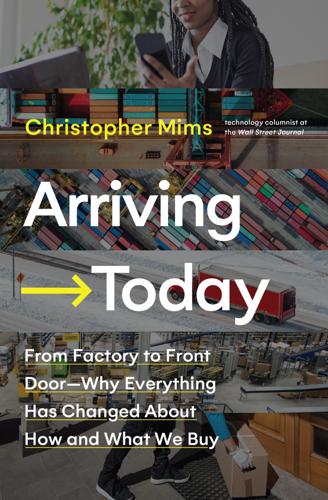
Arriving Today: From Factory to Front Door -- Why Everything Has Changed About How and What We Buy
by
Christopher Mims
Published 13 Sep 2021
This is not a special characteristic of Amazon’s mobile shelving systems, mind you, but a characteristic of all random-access storage systems of its kind, be they digital or physical. The first time I heard of the principle was 4,000 miles away, in an even more automated warehouse in a suburb of London owned by the U.K.-based grocery delivery company Ocado. There, totes of groceries descend into an enormous three-dimensional matrix of goods that are retrieved by robots moving high above, hoisting totes with long cables. The layout and mechanism of Ocado’s and Amazon’s automated warehouses could hardly be more different, and yet both companies had arrived at the same mechanism for organizing them—random stow. Full-time associates rotate through jobs at fulfillment centers, so it’s entirely possible that the person who stowed an item one day could be picking it the next.
…
See also Bezosism; scientific management Mao Zedong, 278 Marcus, Gary, 142 Marine Exchange of Southern California, 48, 50 Marketplace (Amazon business), 236 Marx, Karl, 87 Marzougui, Hedi, 28 Mason, George, 264 mass production, development of, 99–101, 214, 215 McAdam, John London, and macadam roadbuilding, 129 McDonald’s, 123, 205, 220 McKaye, Benton, 130 McLean, Malcolm, 14 McNamara, Robert, 222 Mechanization and Modernization Agreement, 71 Melville, Herman, 30 MEMS (microelectromechanical systems), 145 Mendez, Marc, 68, 78 Microsoft, 204 “the middle mile,” 251–62; Amazon warehouses, delivery of goods from, 170, 184, 188, 195; defined and described, 251–53; delivery service companies involved in, 252; delivery stations, 261–62; sortation centers for, 252–61 Midvale Steel Works, 96 Mississippi River, freight carriage on, 128 Mitsubishi Electric, 95 mobile shelving units, 172, 174, 175, 179, 181, 183, 185–86, 201, 214, 215, 227, 231 monkey’s fist knot, 64–65 monopsony, 137 Moore’s law, 145, 153 Moravee, Hans, Mind Children: The Future of Robot and Human Intelligence, 178 Moravee’s paradox, 178–79, 243 Morreale, Austin, 197–98, 200, 208, 209–10 Motor Carrier Act (1980), 110 Motorola, 164, 228, 286 Mountz, Mick: Amazon warehouses and, 164–66, 168–69, 173, 174; Bezosism and management systems, 201, 211–14, 228; robotic warehousing and, 178, 182, 183, 191 MSC (shipping company), 22, 70 MSC Industrial Supply, 241–45, 248–49 MSDs (musculoskeletal disorders), 237, 238 muda, 226 Mujin (robotics company), 246 Municipal Warehouse No. 1, Port of Los Angeles, 46 Muro, Marc, 76 Murray, Matt, 209 Musk, Elon, 79, 155 MWPVL International, 201 N95 masks, 8, 10 NASA, 144, 248 natural gas supply chain, 91–92 navigating shipping vessels, 37–43 Nazi-era German technology, 131, 143–44 NBC News, 276 Nelson, Daniel, 98, 102 Neopanamax vessels, 27 Netherlands (container ship), 48–50, 52, 54, 55, 57, 60–62 New York and New Jersey, Port of, 48, 55, 61 New York Herald, 129 New York Herald Tribune, 104 New York Times, 112, 114, 276 NEXT Trucking, 74 Nieves, Erik, 244, 247, 249 NIKE system at Amazon, 174–75 Nvidia, 153, 154 Oakland, CA, port of, 52 Obama, Barack, 279 Ocado, 186 OfficeMax, 168 oil crisis of 1970s, 9 Omar, Nimo, 171 Onetto, Marc, 221–26, 228, 229–30, 232, 248 OOCL, 22, 26, 29, 36 OOIDA (Owner-Operator Independent Drivers Association), 111 Operation Paperclip, 144 ORION (On-Road Integrated Optimization and Navigation) system, 283–84 Osaro, 246 OSHA (Occupational Safety and Health Administration), 233, 240, 279 Pacific Maritime Association, 71 Pacific Ocean. navigating, 40–43 Pacino, Al, 277 Paltrow, Gwyneth, 184 Panama, as flag state, 32 Panama Canal, 26–27, 38 Panttila, John “JP,” 148–49 parallelization, 154 Pennsylvania Turnpike, 132 PepsiCo, 136 physical demands: on Amazon workers, 171–76, 197–98, 200, 202, 235–37; on delivery drivers, 272–73 “pick” (extraction of items from storage) at Amazon warehouses, 184–88, 202 pick towers, 160 Pickle (robotics company), 246 Piggly Wiggly, 167 pilot card, 57 Plus One Robotics, 243–46 pods, at Amazon, 175 Portable Pilot Unit, 59 Porter, Brad, 175, 181, 183, 227, 239 Portland, OR, port of, 52 ports.
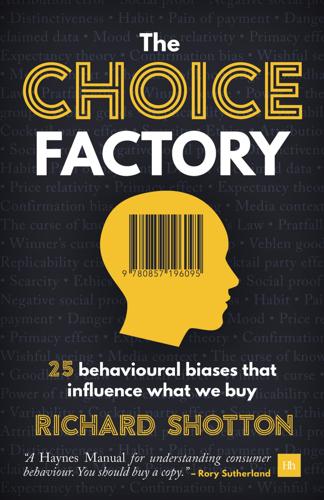
The Choice Factory: 25 Behavioural Biases That Influence What We Buy
by
Richard Shotton
Published 12 Feb 2018
Stress there is a limited time to buy your product A simple way to apply the bias is to announce that if consumers don’t purchase soon they’ll miss out on the opportunity to do so. This is an established tactic for brands, especially among retailers who often stress that a sale will end soon. However, brands are becoming increasingly sophisticated in their application of the bias. Ocado have introduced flash sales just before you checkout. The sale only lasts as long as you’re on the page. The fleeting window available creates an abnormal level of interest in a half price tin of beans. As the author, G. K. Chesterton said, “The way to love anything is to realise that it might be lost.”
…
Index 118 118 ad campaigns ad design ad messaging advertising advertising expenditure Alter, Adam anchoring Anderson, Eric Apple iPod Ariely, Dan Aristotle Arkes, Hal Aronson, Elliot Asch, Solomon auctions Audi Avis Banks, Iain banner ads Batey, Ifan Batson, Daniel behaviour contexts Behavioural Insight Team behavioural science Bernbach, Bill biases Binet, Les Black Sheep Vodka Borges, Jorge Louis brand flaws brand ideals brand measurement brand purpose brand reviews brand tracking brands Brink, Lois British Airways ads broken escalator phenomenon Bronner, Fred Brooks, Roy Brown, Millward brownies example browser choice Bruner, Jerome budget airlines budget setting see advertising expenditure Bullmore, Jeremy business growth business success Busse, Meghan bystander effect camera experiment Camerer, Colin Campbell’s soup experiment canned laughter Cantril, Hadley car deals examples card payments category norms CBS Outdoor and TNS cell methodology charity campaigns charm pricing Cherry, Colin Christiaensen, Luc Cialdini, Robert Cimbalo, Richard cinema ads claimed data Clay, Richard cocktail party effect cognitive illusions coin exaggeration Comparethemarket comparison sets confirmation bias Confused consumer overconfidence consumers habits contactless cards contexts behaviour media target cookies example Copernicus Consulting copywriting Corrigan, Spencer Costa coffee credit cards customer reviews Darley, John De Beers diamonds de Crane, Anton Deaux, Kay Deppe, Michael descriptive norms diamonds see De Beers diamonds diary-based experiment digital ads digital brand tracking direct mail discounts distinctiveness distraction dress sales experiment Dunning, David Dzamic, Lazar Ebbinghaus, Herman Eno, Brian estate agents ethics evaluation expectancy theory explicit messages fake beer experiment fake brands Fanelli, Daniele Ferguson, Alex Festinger, Leon Field, Peter first impressions football sponsorships Ford found data fundamental attribution error general election, UK Genovese, Kitty Genovese syndrome see bystander effect Gilbert, Dan Give Blood campaign, NHS gluten-free products Gocompare Goldstein, Noah good mood Goodhart’s Law Goodman, Cecile Gossett, William Sealy green goods Griffiths, Dylan Griskevicus, Vladas groups Guinness Gumroad habits Haidt, Jonathan Halifax Halpern, David Harford, Tim Hastorf, Albert heavy buyers Hegarty, John Hershfield, Hal Hobday, Gabrielle Hoffman, Bob Housman, Michael injunctive norm IPA Effectiveness Databank isolation effect JC Decaux Jenkins, Jeff Jones, John Joyner, Cynthia Jung, Carl Kahneman, Daniel Kandasamy, Anna Kay, John King Cobra beer knowledge Kruger, Justin labelling lager choice example Larrey, Dominique Jean Latané, Bibb leading brands Leahy, Terry Levenson, Bob lies life events Linford, Claire localisation loss aversion Lumen Research Maccoby, Nathan Maclean, Laura Magners cider male incontinence brand Manchester United Many Labs Replication Project market leaders marketing marketing managers marketing triage Martin, Steve maximisers McDonald’s media contexts medical practice method planning mimicry Mirenberg, Matthew Moneysupermarket mood Moseley, Winston motivation music musicians National Survey of Sexual Attitudes and Lifestyle (NATSAL) Neale, Margaret negative opinions negative social proof Nespresso new energy provider example New Look campaign newspaper ads Newton, Elizabeth NHS Give Blood campaign nine-enders Nokia nominative determinism Northcraft, Gregory Nosek, Brian nudges Nurse Family Partnership observed behaviour observed data Ocado O’Callaghan, Aidan online advertising overconfidence painkillers payment methods contactless cards credit cards Pelham, Brett perfume experiment Perry, Katy personal appeal personalisation persuasion petrified wood experiment placebo effect Polkinghorne, Vic popularity pratfall effect Prelec, Drazen pre-paid gift cards presentation Prezzo, Mark price price illusions price relativity primacy effect principal-agent problem product flaws programmatic advertising promotions Quinn, Jeffrey Raghubir, Priya recall Red Bull rejecters replicability Restorff, Hedwig von Riddell, Jenny Rosenzweig, Phil Ross, Lee Ross, Stephen Rosser Reeves fallacy Rudder, Christian Sainsbury’s satisficers scarcity serial position effect sexism sexual partners Shapiro, Matthew Sharp, Byron Sherif, Muzafer Shiv, Baba Shotton, Richard ad design Black Sheep Vodka brand purpose charity campaigns contactless cards fake beer experiment general election good mood green goods lager choice leading brands life events loss aversion male incontinence brand New Look campaign nine-enders overconfidence perfume experiment product flaws scarcity spending patterns sponsorships thought experiment value perception shower gel example Shteynberg, Garriy Simester, Duncan Simon, Herbert Simonsohn, Uri Simonson, Itamar Slovic, Paul Snickers chocolate bars social media social proof negative spending patterns sponsorships Srivastava, Joydeep Stella Artois Stengel, Jim Stengel Stephens-Davidowitz, Seth Street Bump app, Boston Strong, Rebecca supermarkets surveys Sutherland, Rory Svenson, Ola switched brands tailored approach target audiences target contexts target setting targeting ads tax payments Tesco Thaler, Richard The Wasp Factory (Banks, 1984) thought experiment time frames Total Recall Touchpoints towel experiment tracking data transparency Trott, Dave TV ads Tversky, Amos unintended consequences Vallance, Charles value perception video-conferencing Vietnam visual illusions vitamins example Von Restorff effect VW ad campaign Wansink, Brian waste websites Weston, Laura wheel of fortune example Whiskas Wikipedia Wilcox, Keith winner’s curse wishful seeing Wood, Wendy Worchel, Stephen Yahoo younger age groups Zettelmayer, Florian Zhang, Yong Zinkan, George

Sex Power Money
by
Sara Pascoe
Published 26 Aug 2019
Lauren said no, presumably because she doesn’t enjoy getting murdered, and he then asked her to refund him the cost of her coffee. It’s funny, isn’t it? All the newspapers picked it up because this was back before the Trump presidency and they had a lot of pages to fill. They printed Lauren’s description of the date, with the guy saying he had an Ocado delivery coming and had to hurry back. They printed screengrabs of the messages between them, with her saying no thank you to meeting up again, she hadn’t felt a ‘spark’, and his reply: ‘OK, fair enough. Can you pay me back for your coffee? I don’t like wasting money. Prefer to use it on a date with someone else.’
…
These creamy coolers are the coffee-shop equivalent of ordering lobster and champagne. ‘A creamy cooler to go,’ is what Kanye West would say if he popped into Costa on his way to a concert. Rappers would rap about creamy coolers if their music was set in cafes and not da club. NO— I wasn’t. We can all enjoy judging this guy – sure, he’ll splash out on Ocado for himself but the beverage he bought Lauren was a loan on the understanding of … what? Putting out? A guaranteed second date? Wanting the money back suggests there’s an unspoken deal which she broke. He demands reimbursement like she’s a shop that overcharged him or sold him a faulty product. He wants his £3.50 returned so he can ‘use it on a date with someone else’.
…
Is it the quibbley small amount that made him ‘a little bit stingy’? Would we have felt differently if he’d spent hundreds of pounds on Lauren’s meal? Or is it that 78 per cent of Telegraph readers accept a bizarre status quo where men of any income are automatically expected to pay for women on dates? Yes. I disagree. I took Lauren’s side against Ocado Man until I read her saying, ‘I always offer to pay anyway and women should always offer to pay.’ Listen up, Lauren, ‘offering to pay’ is not the same as paying. Offering to pay is a gesture, paying is equality. ‘Women should always offer to pay’ strongly suggests that no man will ever let them. That by ‘offering’ you’ve excused yourself.
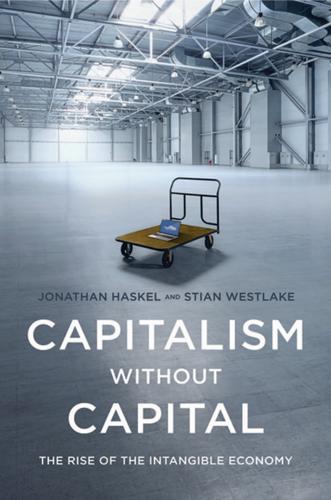
Capitalism Without Capital: The Rise of the Intangible Economy
by
Jonathan Haskel
and
Stian Westlake
Published 7 Nov 2017
Supermarkets began to invest in complex pricing systems; more ambitious branding and marketing campaigns (including launching ranges of own-label products); more detailed processes and systems for staff to follow, backed up by training; and management systems to allow stores and central offices to track performance, balance stock levels, and plan promotions. Alongside this, a host of intangible-intensive businesses have appeared in the sector, ranging from online competitors like FreshDirect and Ocado, which use software to replace stores, to businesses that process information to help supermarkets, such as loyalty data experts DunnHumby and LMUK. Fast-growing tech companies are some of the most intangible-intensive of firms. This is in part because software and data are intangibles, and the growing power of computers and telecommunications is increasing the scope of things that software can achieve.
…
See MOOCs Matthews, Colin, 1–2 Maxjet, 162 Mazzucato, Mariana, 161, 168, 232 McAfee, Andrew, 30, 123 McDonald’s, 67 McKinsey & Company, 73, 135, 195 McKinsey Global Institute, 81 McLean, Andrew, 194 McNerney, James, 194 McNichols, Maureen, 204 measurement, of intangibles, 36–43, 46–49; and different types of investments, 43–46; future challenges in, 52–55 Mickey Mouse Curve, 78–79 Microsoft, 4–5, 7–8, 40, 175, 222–23; scalability of, 67, 102, 105 microwave ovens, 80, 81, 85, 239 Milanovic, Branko, 120, 124 Miles, David, 168 Milgrom, Paul, 194, 196 Mills, Les, 17–18, 21, 187, 239 Mills, Philip, 17 Mintzberg, Henry, 53 Miyagawa, Tsutomu, 42 mobile intangibles, 139–40, 248n4 Mokyr, Joel, 64 monitoring and management, 188–91 monopolies, 76, 78 MOOCs (Massive Open Online Courses), 230 Moore, Lyndon, 132–33, 134 Moore’s Law, 30 Mowery, David, 226 Mukai, Kentaro, 42 mule-spinners, 126–27 multi-factor productivity, 98–101 Musk, Elon, 187, 198, 220 Myhrvold, Nathan, 152, 223 Mylan, 112, 113 Nakamura, Leonard, 41 Napster, 18 Nardelli, Robert, 194 national accounts, 20–21, 43, 51 National Bureau of Economic Research (NBER), 38 National Institute for Health and Clinical Excellence, 154 Nature of Technology, The (Arthur), 80 neoliberalism, 119 network effects, 66 New Growth Theory, 66 Nightingale, Paul, 155 NIMBYs, 139, 150 Nohria, Nitian, 194 Nokia, 104 nonexcludable ideas, 72 non-rivalry, 66 obliquity, 161 Ocado, 23 Occupy Wall Street, 120 O’Connor, Sarah, 183 Office for National Statistics (ONS), 46 Oliner, Steve, 39 open innovation, 83–84, 103–4, 110 openness to experience, 141–42 option value, 72, 87, 175 oral rehydration therapy (ORT), 66, 67 Organisation for Economic Co-operation and Development (OECD), 5, 38, 41, 43, 52; on employment strictness, 32; on productivity gap, 96; on quality adjustment figures, 40 organizational development, 50–51 Other People’s Money (Kay), 205 Oulton, Nicholas, 41 ownership, of intangibles, 211–14 Parlophone records, 59, 61 Pasteur, Louis, 64 patents, 76, 153, 165, 213; blocking, 113–14 patent trolling, 78–79 Patientslikeme, 152 PayPal, 78, 184–85, 187 pensioners, 121–22 Pepsi Co., 49 Perez, Carlota, 146 Pets.com, 42 Pfizer, 31 Piketty, Thomas, 19, 118, 121; on capital accumulation, 124–25; on housing, 136–37, 139; on the income gap, 127–28 Pinch, The (Willetts),121 Pisano, Gary, 84–85 place, inequality of, 122, 128–29, 136–39, 249n3 populism, 122–23 Porter, Michael, 148 post-Fordist economy, 4 post-industrial future, 4 prescriptive knowledge, 64 Presley, Elvis, 61 Price, David, 129 producers, 20; and profitability explained, 97–101 production, 20–21 Production and Distribution of Knowledge in the United States, The (Machlup), 38 productivity: of intangibles, 28–30, 95–96; labor, 96; profits and, 97–101, 103–7; and the ratchet effect, 195–96; total factor, 96, 98, 102, 107–9 profitability, 97–101, 103–7, 247n2 profits, and secular stagnation, 94–96 property rights, 153, 212 propositional knowledge, 64 public investment: challenges of, 231–34, 234–36; and public procurement, 226–28; in R&D, 33–34, 55, 77, 223–24; in training and education, 228–30 public policy, 208–9; challenges for, 209–11, 231–34; and cultivating synergies, 214–18; and financing for intangible investments, 218–21; and government-funded investment in intangibles, 223–30; and intangible inequality, 236–38; and ownership of intangibles, 211–14 public procurement, 226–28 Pumping Iron, 16, 17 purchases of investment assets, 47 Purposeful Company project, 220 Quarterly Acquisitions and Disposals of Capital Assets Survey, 46 Radio Taxis, 82 Rajgopal, Shiva, 168 R&D (research and development): accounting treatment of, 202–4; cost of, 28, 41, 71; definition of, 244n4; effect on GDP of, 38, 43; government spending on, 33–34, 55, 77, 223–24; in-house, 47; as intangible investment, 7, 22, 28, 43, 44, 49; investment in, 169–74; Microsoft’s investments in, 5; returns on, 29, 31; scalability and, 60; and spillovers, 72–73 ratchet effect, 195 Rate and Direction of Inventive Activity, The (conference), 38 Rauch, Ferdinand, 49 Raytheon, 80 Reich, Robert, 133, 134 rent-seeking, 113 Ridley, Matt, 81 Rise and Fall of American Growth, The (Gordon), 93–94 Roberts, John, 194, 196 Roberts, Richard, 126 Roberts, Russell, 188 Rognlie, Matthew, 128, 137 Rolls-Royce, 31 Romer, Paul, 41, 62, 63, 66, 147 Rosen, Sherwin, 130 Rowling, J.
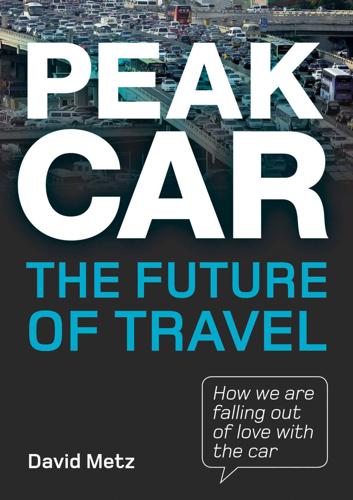
Peak Car: The Future of Travel
by
David Metz
Published 21 Jan 2014
Smartphones are helping make dense cities good places to live and digital technology is changing behaviour, including travel behaviour. Online shopping is growing rapidly, both through wholly new businesses like Amazon (initially for books but now for a wide range of consumer goods) and delivery‑only supermarkets like Ocado in Britain, but also as established stores develop their own websites and delivery arrangements. In the US, some eight per cent of all retail sales were recently estimated to be online, with growth of ten per cent a year expected. Online shopping is advancing in Britain, where population density makes delivery relatively cheap and where broadband Internet access is general. 75 per cent of households now order goods by phone, post or over the Internet, up from 65 per cent ten years ago.
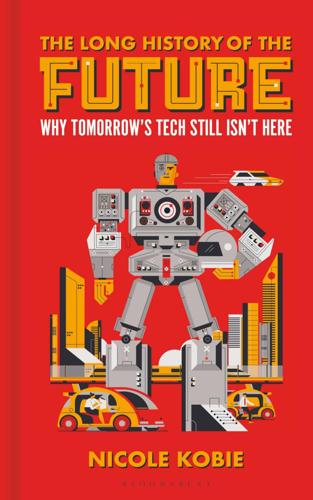
The Long History of the Future: Why Tomorrow's Technology Still Isn't Here
by
Nicole Kobie
Published 3 Jul 2024
Right now, the main role for bipedal, human-ish robots seems to be serving as research platforms, with entertainment or marketing gigs on the side, and the odd trial here and there in retail, security and logistics. That’s a smart move, as the logistics industry is understaffed, as it’s not often well paid and is usually hard work. However, it’s worth noting that many warehouse robots are already in use without looking anything like humans. Britain’s Ocado Technologies uses thousands of rolling box robots to shuffle grocery orders. And though Boston Dynamics began its work developing a warehouse robot with the bipedal Atlas, it slowly evolved from the humanoid form to Stretch, with its rolling design and AI to understand what boxes to pick and where to put them.
…
WIRED, September 6, 2019. https://biturl.top/nueuQ3 Index 1X Technologies - EVE and NEO here 510 Systems here A* algorithm here Abovitz, Rony here Ackland, Nigel here activism here, here ADALINE and MADALINE neural networks here Advanced Micro Devices (AMD) here Advanced Research Projects Agency Network (ARPANET) here, here Al Jaber, Sultan here Aldebaran Robotics here Alderson, Samuel W. here Alef Aeronautics here Allende, Salvador here Alphabet here, here, here Sidewalk Labs here, here see also Google Alphago algorithm, DeepMind here Altman, Sam here Amazon here, here, here American Institute Fair (1867) here American Research and Development Corporation (ARDC) here American Society of Automotive Engineers (SAE) here Anderson, Sterling here Anthony’s Robots here Antonov, Michael here Apple here, here, here, here, here, here, here, here, here augmented reality headsets here, here APT-E (Advanced Passenger Train) project, British Rail here Arcadio (aka Stelarc), Stelios here Argo AI here ARPA see DARPA (Defense Advanced Research Projects Agency) ARPANET (Advanced Research Projects Agency Network) here, here artificial intelligence (AI) here, here, here, here, here, here, here Alan Turing here Alphabet/Google here, here, here, here, here, here, here, here ‘Blocks World’ here chess challenges here, here, here, here computer vision here concerns and misuse here, here, here, here, here, here, here, here data resources and ImageNet here deep and machine learning here, here, here, here, here ‘expert systems’ and rules based models here, here, here ‘general’ intelligence here, here, here, here, here graphics processing units (GPUs) here John McCarthy here, here, here, here, here, here, here large language models (LLM) here Lighthill report (1973) and opposition here, here narrow AI here, here, here natural language processing (NLP) here, here neural networks here, here, here, here convolutional here OpenAI and ChatGPT here, here, here, here, here, here, here Perceptron model here pre-1970s here, here SRI Shakey robot here, here strong vs weak here, here symbolic here, here Timnit Gebru et al AI paper controversy here, here Asimo robot, Honda here ASKA here Asseily, Alex here Atari here, here augmented reality (AR) and virtual reality (VR) here, here Apple here, here, here Atari here, here computer graphics quality here, here development costs here Eric Howlett and the LEEP system here, here Facebook and Meta here, here, here, here Google Glass smart spectacles here, here, here Ivan Sutherland VR headsets here, here Jaron Lanier here, here, here Jonathan Waldern here metaverse the here Microsoft HoloLens here motion sickness here, here, here, here, here, here, here NASA here, here, here, here Nintendo and Virtual Boy here Palmer Luckey and Oculus Rift headsets here, here, here, here PTSD treatment here Rony Abovitz and Magic Leap here Samsung Gear VR here, here Sebastian Thrun here Sega VR here, here Snap and Vergence Labs here Sony PlayStation VR here Virtual Visual Environment Display (VIVED) here VPL DataGlove and EyePhone here, here, here, here Aurora here, here Aviauto roadable aircraft here Babbage, Charles here Bagnell, Drew here Baidu here Bakken, Earl here, here Balsillie, Jim here Banavar, Guru here banking industry here, here Barcelona, Spain here Bard LLM, Google here, here BASIC (Beginners’ All-purpose Symbolic Instruction Code) here battery technology here, here, here Beach, Alfred here, here Becker, Allen here Behringer, Reinhold here, here, here, here, here, here, here Bel Geddes, Norman here, here, here, here Bell Helicopter here Labs here, here Nexus here, here Bender, Emily here Bengio, Yoshua here Benz, Carl here Berlichingen, Götz von here Berners-Lee, Tim here Bertin, Jean here Bezos, Jeff here bionic technology here Blackrock Neurotech here ‘Blocks World’ AI development here Blomfield, Tom here ‘Blue Cruise’ automation system, Ford here Boeing here, here, here Bombe and Colossus decrypting machines here, here Boring Company here, here Boston Dynamics here, here, here, here, here, here, here, here Atlas robot here, here, here BigDog robot here, here RHex here Sandflea here Spot here, here, here, here Stretch here, here Bostrom, Nick here BrainGate/Utah Array implants here, here Branson, Richard here Bria, Francesca here Brin, Sergey here British army 2222 British Medical Journal here British Rail here, here Brooks, Harry here Brooks, Rodney here Brunel, Isambard Kingdom here Bryan, Leland here Buchanan, Bruce here Buolamwini, Joy here, here, here Burdett, Ricky here Canella, Judge John here carbon emissions here, here, here, here Cardboard, Google here Carmack, John here Carnegie Mellon University (CMU) here, here, here, here, here, here Carson, Johnny here Catalyst Research Corporation here Catanzaro, Bryan here CAVForth project, Forth Bridge here Cavoukian, Ann here CeBIT (2010) trade show here Central Intelligence Agency (CIA) here Cereproc here Chambless, Edgar here Chan Wolf, Helen here, here ChatGPT here, here, here, here Cisco here, here Claydon, Tony here Clegg, Samuel here, here climate crisis here, here Clinton Foundation here Clynes, Manfred here cochlear implants here Commodore here Convair (Consolidated Vultee Aircraft) here, here convolutional neural networks here Cook, Tim here Cornelius, Nancy here COVID-19 global pandemic here, here, here, here Cray 1 supercomputer here Crevier, Daniel here, here, here Crow, Steven here Croydon Times here Cruise, GM here, here, here, here, here Cubitt, Sir William here Cummings, Bob here Curtiss, Glenn here Cyberjaya, Malaysia here cybernetics here cyborgs and brain computer interfaces (BCIs) here BCIs here Blackrock Neurotech here Elon Musk and Neuralink here, here, here, here, here g.tec intendiX interface here, here Kevin Warwick here Mark Zuckerberg and Facebook here, here, here, here medical applications here, here, here, here, here, here, here, here Neil Harbisson and colourblindness here origins of the term ‘cyborg’ here pacemakers here Peter Scott-Morgan and ALS treatment here prosthetics and bionic technology here RFID chips here, here, here Utah Array/BrainGate implant here, here William House and cochlear implants here Cyc AGI here da Vinci, Leonardo here, here Daimler-Benz/Mercedes-Benz here, here Dally, Bill here DARPA (Defense Advanced Research Projects Agency) here, here, here, here, here, here, here, here, here, here, here, here, here Grand Challenge here, here DataGloves, VPL Research here, here Davis, Ruth here Dean, Jeffrey here DEC here Deep Blue AI here, here DeepMind, Google here, here, here DeGray, Dennis here Dendral algorithm here Desforges, Abbé here Devol, George here Dickmanns, Ernst here, here, here, here, here Dietrich, Carl here Difference Engine here Digital Equipment Corporation (DEC) here Dirks, Susanne here diversity, lack of tech industry here Djourno, Dr André here DNNresearch here, here Doctoroff, Dan here, here, here Dolgov, Dmitri here Dreyfuss, Henry here driverless cars/technology here, here, here, here 4D system here Anthony Levandowski here, here, here Anthony’s Robots pizza delivery here Argo AI here artificial intelligence (AI) here, here, here autonomy spectrum here, here current motivation for innovation here DARPA and DARPA Grand Challenge here, here Ernst Dickmanns and VaMoRs here, here, here fatalities here, here, here, here General Motors and Cruise (RCA) here, here, here, here global cost of development here Google/Alphabet and Waymo here, here, here, here, here, here, here, here, here, here motorways here, here, here, here, here NavLab 5 System and RALPH here ‘no hands across America’ trip here Norman Bel Geddes here Prometheus project here public transport here, here, here, here Road Research Laboratory (RRL), UK here Tesla here, here, here, here TRL GATEway pods here Tsukuba Mechanical Engineering Lab here Uber here, here, here US Congress here VaMP and VITA-2 here World’s Fair, New York (1939) here Dugan, Regina here Electronic Age magazine here Electronic Numerical Integrator and Computer (ENIAC) here, here Eliot, George here ELIZA here Elmqvist, Rune here Em, David here EMIEW, Hitachi here Engelberger, Joe here, here Engineer magazine here Enigma cypher here Entscheidungsproblem here ERCO Ercoupe here Ermisse, Daniel here Evans, Dave here Exhibition of the Society of Model Engineers (1928) here Eyriès, Dr Charles here Facebook here, here, here, here, here see also Meta Fairchild Semiconductor here, here Federal Aviation Administration (FAA), US here, here, here, here, here Fei-Fei Li here, here Feigenbaum, Edward here Fenton, Robert here, here Ferrer, Josep-Ramon here Fifth Generation Computer Project, Japan here Firefly driverless car here, here, here Fisher, Scott here, here Flood, Joe here Flow, Sidewalk Labs here flying cars here, here, here, here air-traffic control here Alef Aeronautics Model A here battery technology here business model operation here Carl Dietrich – Terrafugia Transition here EHang 184 (AAV) here Glenn Curtiss – Autoplane (1917) here Hafner Rotabuggy here Henry Ford – Flivver here, here Henry Smolinski Cessna/Ford here Jaunt Air Mobility Journey here Juan de la Cierva – autogyro (1923) here Ken Wernicke – AirCar here landing space and vertiports here Lilium Jets here, here, here, here, here, here, here Luigi Pellarini – Aeronova here Moulton Taylor – Aerocar here, here Opener BlackFly (later Pivotal Helix) here Paul Moller inventions here post-WWII small aircraft sales here potential practical applications here regulatory authorities here, here, here, here, here René Tampier – Avion-automobile (1921) here ‘roadable aircraft’ here, here Robert Edison Fulton – Airphibian here Sebastian Thrun – Kitty Hawk here Steven Crow – Starcar 4 here Theodore Hall and the ConvAirCar here, here Trajan Vuia – aeroplane-automobile (1902) here Vladimir Tatrinov – Aeromobile (1909) here Volocity – Volocopter here VTOLs and eVTOLs here, here, here Waldo Waterman inventions here Forbes Nash Jr, John here Ford, Henry here, here, here Ford Motor Company here, here, here Forest City, Malaysia here Forrester, Jay here Fortnite here Fortran here Foster + Partners here, here, here Foster, Quintin here, here Fox Dunn, Angela here Fujitsu here Fulton, Robert Edison here ‘Futurama’ exhibition, World’s Fair (1939) here Gaffney, Christopher here gaming industry here, here, here, here, here, here see also augmented reality (AR) and virtual reality (VR) Garrett AiResearch here Gasson, Mark here Gates, Bill here Gebru, Timnit here, here, here General Motors (GM) here, here, here, here, here, here, here General Problem Solver here generative adversarial network (GAN) here Gerhardt, Marcus here Glass smart spectacles, Google here, here Goddard, Robert here Goodfellow, Ian here Google here, here, here artificial intelligence (AI) here, here, here, here, here, here, here augmented reality and Glass smart spectacles here, here, here driverless cars here, here, here, here, here, here, here, here robots/robotics here, here, here X Labs here, here Gow, David here Graphics Processing Units (GPUs) here, here, here Greatbatch, Wilson here Greenfield, Adam here Gregory, Richard here Grumman TACRV (Tracked Air Cushion Research Vehicle) here g.tec here, here the Guardian here, here Guger, Dr Christoph here Günel, Gökçe here, here Hall, Dave and Bruce here, here, here Hall, Theodore here, here Harbisson, Neil here Hart, Peter here, here, here, here, here Harvard University here, here Hashme, Shariq here Hassabis, Demis here Hebb, Donald here Heilig, Morton here Heim, Michael here Henn na Hotel, Japan here Herzberg, Elaine here, here Heseltine, Michael here Hilbert, David here Hinton, Geoffrey here, here, here, here Hitachi here Hoff, Marcian here Hommet, Christophe here, 2241 Honda here, here, here Hopps, John here House, William here Howlett, Eric here HTC Vive VR headset here Hyman, Albert here hyperloops here, here, here 20th century pneumatic trains here Beach Pneumatic Transit Company here cable systems here Dalkey Atmospheric Railway (DAR) here Elon Musk here, here, here, here Eric Laithwaite and Tracked Hovercraft here, here European Hyperloop Week (EHW) (2023) here, here George Medhurst and Victorian pneumatic transport here, here, here, here Hyperloop TT here Isambard Kingdom Brunel here Jean Bertin and Aérotrain here John Vallance’s air-propelled carriage, Brighton (1826) here maglev technology here pneumatic postal shuttles here, here Rammel and Latimer Clark here, here Rohr Industries here, here Samuda brothers and Samuel Clegg here Shinkansen here, here, here Tracked Air Cushion Vehicles (TACV) programme here TransPod here Victorian atmospheric and pneumatic transport here, here, here Virgin Hyperloop One here IBM here, here, here, here ImageNet here Industry on Parade TV programme here the Information website here Ingels, Bjarke here Intel here, here International Conference on Robotics and Automation (2023), IEEE here, here internet here Iribe, Brendan here iRobot here Ishiguro, Hiroshi here, here Jaguar i-Pace here Joby Aviation here, here Kalinske, Tom here Kasparov, Garry here Kates, Josef here Kawasaki Heavy Industries here Kay, Alan here, here Keeling, Mary here Kese, Peter here Kim, John here Kitano, Hiroaki here Kitty Hawk here Kline, Nathan here Kobrinski, Alexander here Koppen, Otto here Krizhevsky, Alex here Krueger, Myron here Kuala Lumpur, Malaysia here Kuiken, Dr Todd here La Cierva, Juan here Laithwaite, Eric here, here languages, early computer here Lanier, Jaron here, here Larsson, Arne here Latimer Clark, Josiah here, here Laurel, Brenda here Laverde, Alberto Vejarano here Le Corbusier here LeCun, Yann here Leg Lab here Legg, Shane here Lenat, Doug here Levandowski, Anthony here, here, here, here, here, here Lidwill, Mark here Life magazine here, here Lighthill, James here, here Lilium here, here, here, here, here, here, here Linden Lab here the Line, Saudi Arabia here linear cities here linear induction motor (LIM) here, here, here Linear Induction Motor Research Vehicle (LIMRV) here Link, Sidewalk Labs here lithium batteries here, here Llama, Facebook here Lobban, Joan here Lockheed Missiles here London Pneumatic Despatch Railway (LPDR) here longtermism here Los Angeles Community Analysis Bureau (CAB) here Lovelace, Ada here LS3, Boston Dynamics’ here Luckey, Palmer here, here, here, here Lyft here Lyons here M-PESA here MacWilliam, John Alexander here Macy’s here Magic Leap here maglev technology here Mahan, Steve here Maisonnier, Bruno here Malapert, Etienne here Manchester Mark here Markoff, John here Marsh, Burton here Masdar City, UAE here Maslow, Abraham here Mattel here Mattern, Shannon here, here Mauchly, John here McCarthy, John here, here, here, here, here, here, here McClelland, James L. here McCulloch, Warren here, here McGreevy, Michael here McMillan-Major, Angelina here McShane, Clay here Mechanical Turk, Amazon here Mechanics Magazine here Medhurst, George here, here Medtronic here, here Meta here, here metaverse here Michie, Donald here, here Microsoft here artificial intelligence (AI) here, here, here HoloLens here Windows here military, US here, here, here, here, here, here, here, here, here, here, here, here, here, here, here, here, here, here Minadoi, Giovanni Tommaso here Minsky, Marvin here, here, here, here, here, here MIT (Massachusetts Institute of Technology) here, here, here, here, here Mitchell, Claudia here Mitchell, Margaret here, here Mitchell, Nate here Mitsubishi here Moller, Paul here Montandon, Adam here Montemerlo, Mike here Monzo here Moore and Moore’s Law, Gordon here Morgan, Garret here Musk, Elon here, here, here, here, here, here, here, here, here, here, here, here, here, here, here Mustang Mach-E, Ford here MYCIN here, here Nagle, Matt here Naimark, Michael here, here NASA (National Aeronautics and Space Administration) here, here, here, here, here National Transport Safety Board (NTSB), US here Nature here NerveGear headset here NetJets here neural networks here, here, here, here convolutional here Neuralink here, here, here New Scientist here New York City fires, 1970s here New York Times here, here, here, here, here, here, here, here, here Newell, Allen here, here Ng, Andrew here Nilsson, Nils here Nintendo here Virtual Boy here Normann, Richard here, here Nvidia here Ocado Technologies here Oculus Rift AR smart glasses here Oculus Rift VR headsets here, here O’Hagan, John here, here O’Kane, Josh here, here Okhitovich, Mikhail here Olson, Karl here, here Open Bionics here OpenAI here, here, here, here, here, here Opener BlackFly/Pivotal Helix here Optimize3D here Optimus robot, Tesla here Osborne 1 here Otto here Ottobock here pacemakers here Paes, Eduardo here Page, Larry here, here, here, here, here, here Papert, Seymour here Paré, Ambroise here PDP-8 and PDP-10 ‘microcomputers’ here Pellarini, Luigi here Penoyre, Slade here perceptrons, AI here Permobil F5 Corpus here Petman, Boston Dynamics’ here Pichai, Sundar here, here Pinkus, Henry here Pitcairn, Harold here Pittau, Rev.

How to Hygge: The Secrets of Nordic Living
by
Signe Johansen
Published 19 Oct 2016
General Reading ∞ Diane Ackerman, A Natural History of the Senses (Vintage Books, 1992) ∞ Michael Booth, The Almost Nearly Perfect People: Behind the Myth of the Scandinavian Utopia (Vintage Books, 2015) ∞ Charlotte and Peter Fiell, Scandinavian Design (Taschen GmbH, 2013) ∞ Tristan Gooley, The Natural Navigator (Virgin Books, 2014) ∞ Yuval Noah Harari, Sapiens: A Brief History of Humankind (Vintage Books, 2015) ∞ Alexandra Heminsley, Running Like a Girl (Windmill Books, 2014) ∞ Anna Kessel, Eat Sweat Play (Macmillan, 2016) ∞ Zach Klein and Steven Leckart, Cabin Porn (Particular Books, 2015) ∞ Aldo Leopold, A Sand County Almanac (OUP, USA, 1968) ∞ Robert Macfarlane, The Old Ways: A Journey on Foot (Penguin Books, 2013) ∞ Marcel Mauss, The Gift (Martino Fine Books, 2011) ∞ Lars Mytting, Norwegian Wood: Chopping, Stacking and Drying Wood the Scandinavian Way (MacLehose Press, 2015) ∞ Robert Penn, The Man Who Made Things Out of Trees (Penguin Books, 2016) ∞ Michael Pye, The Edge of the World: How the North Sea Made Us Who We Are (Penguin Books, 2015) ∞ Richard Sennett, Together (Penguin Books, 2013) and The Craftsman (Penguin Books, 2009) ∞ Simon Singh, Fermat’s Last Theorem (Fourth Estate, 2002) ∞ Henry David Thoreau, Walden; or, Life in the Woods (Princeton University Press, 2016) ∞ Elizabeth Wilhide, Scandinavian Modern Home (Quadrille Publishing, 2008) ∞ Damon Young, How to Think about Exercise (Macmillan, 2014) ∞ Theodore Zeldin, An Intimate History of Humanity (Vintage Books, 1995) Food & Cookery Books ∞ Darina Allen, Forgotten Skills of Cooking (Kyle Cathie, 2009) ∞ Laurie Colwin, Home Cooking (Fig Tree, 2012) ∞ Alan Davidson, North Atlantic Seafood (Prospect Books, 2012) ∞ Olafur Eliasson, Studio Olafur Eliasson: The Kitchen (Phaidon Press, 2016) ∞ Adam Gopnik, The Table Comes First (Vintage Books, 2012) ∞ Sandor Ellix Katz, The Art of Fermentation (Chelsea Green Publishing Co, 2012) ∞ Mark Kurlansky, Cod (Vintage Books, 1999) ∞ Richard Mabey, Food for Free (Collins, 2012) ∞ Harold McGee, McGee on Food & Cooking (Hodder & Stoughton, 2004) ∞ Bee Wilson, First Bite (Fourth Estate, 2015) The books by Diana Henry, Fiona Beckett, Claudia Roden, Nigella Lawson, Richard Bertinet, Tim Hayward, Nigel Slater, Alice Waters, The Barefoot Contessa, Yotam Ottolenghi, Nick Barnard of Rude Health and the Cook’s Illustrated series of cookbooks have all proven invaluable. Nordic Stockists ∞ The Scandinavian Kitchen, Ocado, Waitrose for ingredients cited in this book. IKEA also does a decent line of Nordic foods ∞ Peter’s Yard for the best sourdough crispbread (it should be in every kitchen cupboard for impromptu hygge and fika!) ∞ Fabrique Bakery for bread and buns ∞ Skandium and Att Pynta for design and interiors ∞ Hus & Hem, Cloudberry Living for Nordic interiors Iittala, Marimekko, Georg Jensen ∞ Hay, Broste Copenhagen, Nordic Elements ∞ Although not Nordic, Muji has a similar, spare style that works well with Nordic design and interiors ∞ Cos, H&M, Acne, & Other Stories do great Nordic-style basics About the Author After graduating with a Bachelor’s degree in archaeology and anthropology from the University of Cambridge, Norwegian-American writer Signe Johansen trained at Leiths School of Food and Wine in London, worked in several of the UK’s top restaurants and went on to do her Masters in the anthropology of food at SOAS food studies centre at the University of London.
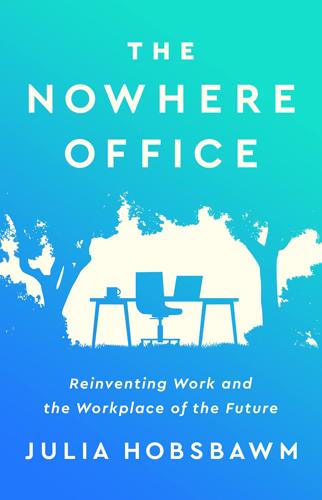
The Nowhere Office: Reinventing Work and the Workplace of the Future
by
Julia Hobsbawm
Published 11 Apr 2022
Anxiety about the loss to Learners of vital social capital – the skills to build networks, to watch and learn in ways that cannot be quantified by qualifications earned – was repeatedly mentioned by older office workers in their conversations with me. David Shriver, communications director at global tech retailer Ocado with 15,000 employees who has built a stellar office-based career over several decades, said: What Covid has shown us, I think, is that social capital degrades a lot faster than we think. A hybrid model embracing work from home and work from office is fine, but we all need to recognise that social capital is a lot harder to build over Zoom and that there is a cost to neglecting it.

Scotland’s Jesus: The Only Officially Non-Racist Comedian
by
Frankie Boyle
Published 23 Oct 2013
Lawyers are routinely ripping off divorcing couples. Glasgow lawyers know not to use that approach, as if they quote more than £800 they know they can be undercut by a hit man. Ministers are planning on giving couples a divorce app to get them through a break-up. For men, it will provide a list of porn sites and a link to Ocado. I liked that story where a husband trying to prove to his wife that he was good at doing the housework accidentally burnt his face when the phone rang and he picked up the iron. He won’t be making that mistake again! As he’s now deaf. Women apparently spend three hours a week re-doing chores their partners haven’t finish properly.

Extreme Rambling: Walking Israel's Separation Barrier. For Fun.
by
Mark Thomas
Published 13 Apr 2011
He doesn’t wait for an answer but strides into the al-Kurd family’s property. ‘Phil!’ I call as I dash towards the group, who are disappearing into the garden. ‘I’m there!’ calls Phil from behind me and I hear him running too. We have no idea of who has just arrived at that house, but it’s too early for the post and it sure ain’t Ocado. All I know is that the politician thinks highly enough of himself for me to be interested. By the entrance to the home now stand two guards who eat way too much protein and need to cut out the supplement shakes. I can feel that Phil is still next to me as we slip past them and through the entrance.
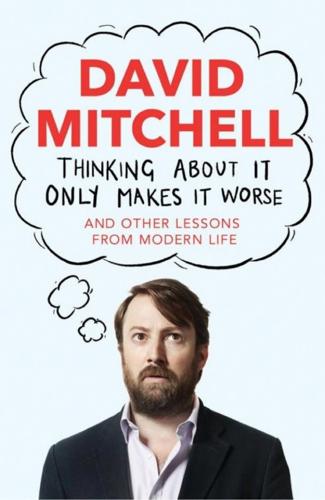
Thinking About It Only Makes It Worse: And Other Lessons From Modern Life
by
David Mitchell
Published 4 Nov 2014
I was really rooting for them until they ate him.” The couple had been stuck in slow-moving traffic on London’s North Circular Road when dozens of cyclists sliced through the gridlock and surrounded an Eddie Stobart truck. “I think they wanted a Stobart,” another onlooker said. “They passed an M&S lorry and an Ocado van and left them both alone.” Most of the cannibal riders were subsequently arrested but remained unrepentant. “We only ate one of them,” they said in a statement. “They’ve killed loads of us and it barely makes the news but we eat just one of them and suddenly that’s more interesting than Syria or Tulisa’s new tattoo!”
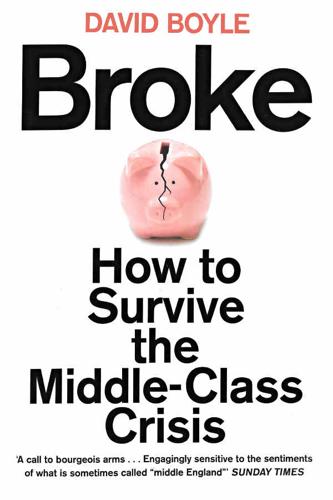
Broke: How to Survive the Middle Class Crisis
by
David Boyle
Published 15 Jan 2014
There is hardly anyone at home behind the reclaimed front doors with their stickers for the National Childbirth Trust in the windows. The people who get off the train from Clapham Junction with me still carry shopping bags from Peter Jones, as they always did. Yes, the slightly faded advertisements for the Surrey Comet still grace the newsagent stands. Yes, I am nearly run over by a delivery van from Ocado. But there are also men on the platform bawling into their mobile phones in Polish, and there is one man dignified and resplendent in the white robes of an imam. What would Margot Leadbetter have said? Things are different for lunch too. I’m not at all sure that the menu in the Surbiton Brasserie (if it existed in 1975) would have offered ‘lemon chicken with pine nuts’.
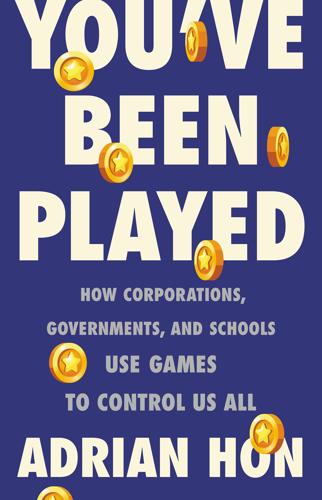
You've Been Played: How Corporations, Governments, and Schools Use Games to Control Us All
by
Adrian Hon
Published 14 Sep 2022
Health insurance gamification can generate other kinds of perverse behaviour. In the early days of the UK’s first COVID-19 lockdown, my friend Naomi Alderman told me, “Vitality Health right now is literally incentivising me to go to the supermarket rather than get deliveries, because the only way I can get my ‘points’ is by using waitrose.com, not Ocado, and they only have collection, not delivery slots, from now through July. So Vitality Health is offering me incentives to put myself at greater risk of catching the novel Coronavirus.” And incentives are hard to ignore when they can amount to hundreds of pounds saved or lost each year. Becoming a travel hacker or gaming your health insurance to save money isn’t a privilege available to everyone.

The Lie of the Land
by
Amanda Craig
Published 14 Jun 2017
Lottie can’t help feeling proud of her son, whose wide grin and coppery curls are like an infusion of energy and life in the room. ‘What can we do to help?’ she says. ‘My neighbour has Heidi, but it’s not a satisfactory situation as she has cats, and they will keep running away. If you could bring her home and take the poor doggie for walks …’ ‘Yes, fine. What else? I’ll set up a regular Ocado delivery, if you give me your credit card.’ Marta has always resisted this; though impressively good at the Internet, she doesn’t trust online shopping. She says, unexpectedly, ‘Good idea. How long can you stay, darling?’ Lottie thinks about the difficulties of even parking a car outside her mother’s house.

Greater: Britain After the Storm
by
Penny Mordaunt
and
Chris Lewis
Published 19 May 2021
QUEUES We queue up at school, in Parliament to vote, at Glastonbury (indeed, all festivals and sports events), at the pub, to get into clubs, to get the latest bargain, at the bank, at the Post Office, on parents’ evenings, in A&E, at petrol stations, at cash machines, for changing rooms, on the phone, in fast-food restaurants, in supermarkets, for public toilets, at Hamleys for the latest Christmas gift, outside the royal palaces, for amusement park rides, at football grounds, for the dole, for social housing, even at the crematorium. Covid introduced yet more opportunities to queue offline at ‘drive-thru’ test centres or online to get on to the Ocado website. It’s all tied up with patience, manners, decency, fair play and democracy. That’s why the country hated the stockpiling that preceded the pandemic (even as people were doing it themselves). That’s why they allow vulnerable people to go ahead of them in supermarkets. There is evidence that the British will spend almost six months of their entire lives queuing up for stuff.19 In some places, like Wimbledon or for royal weddings, it’s even seen as part of the ‘fun’ to queue outside all night in a tent.